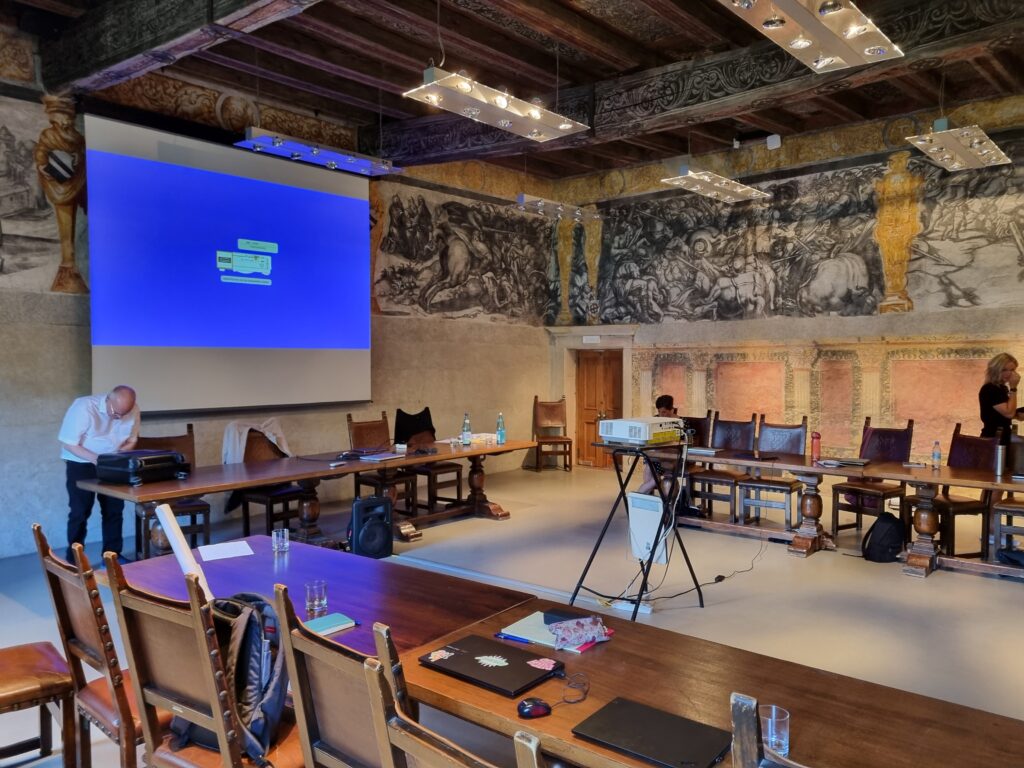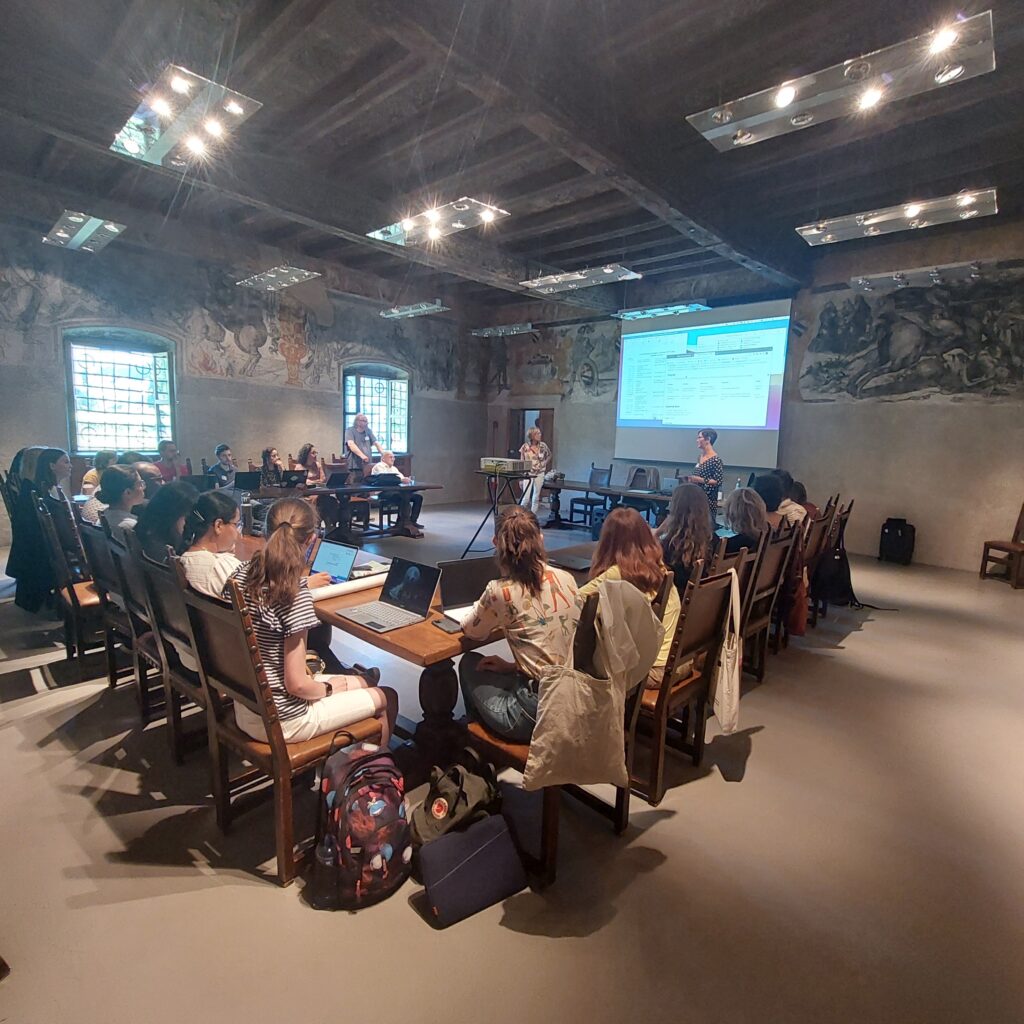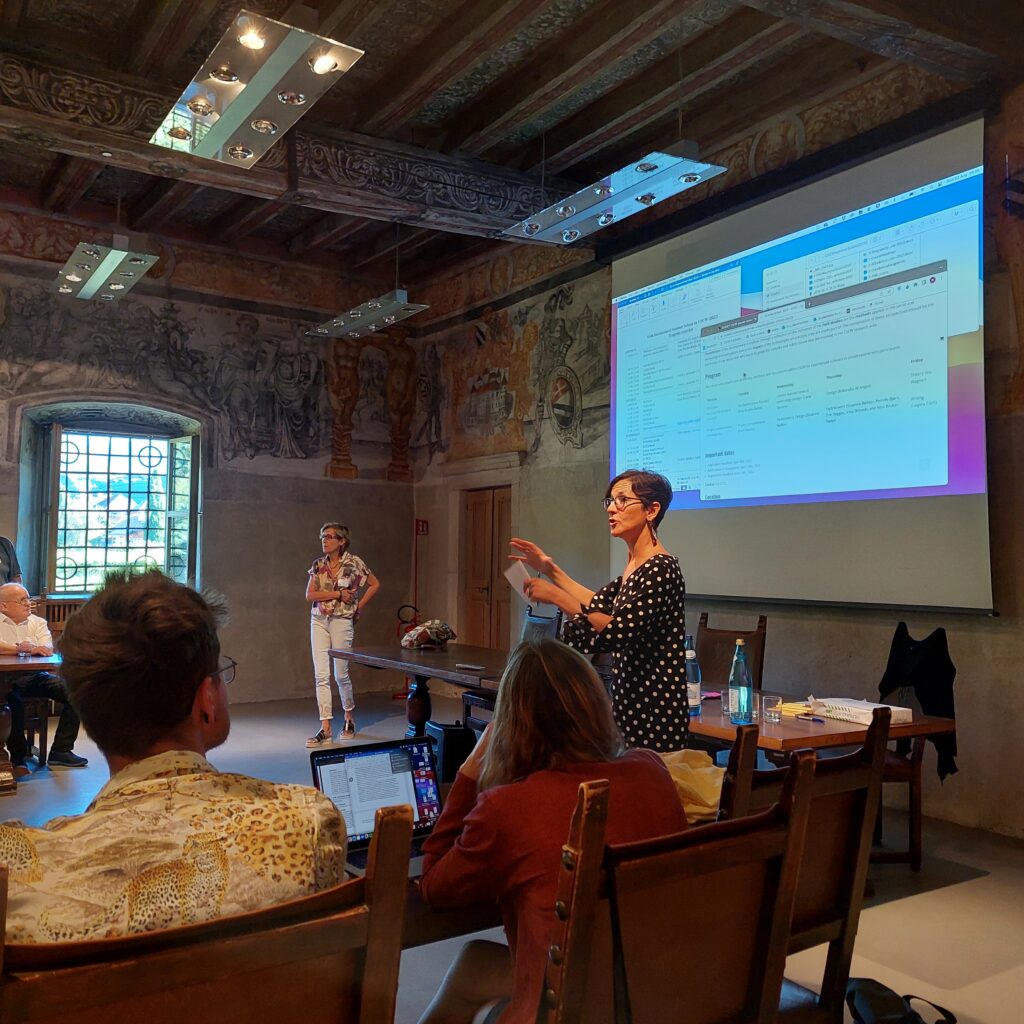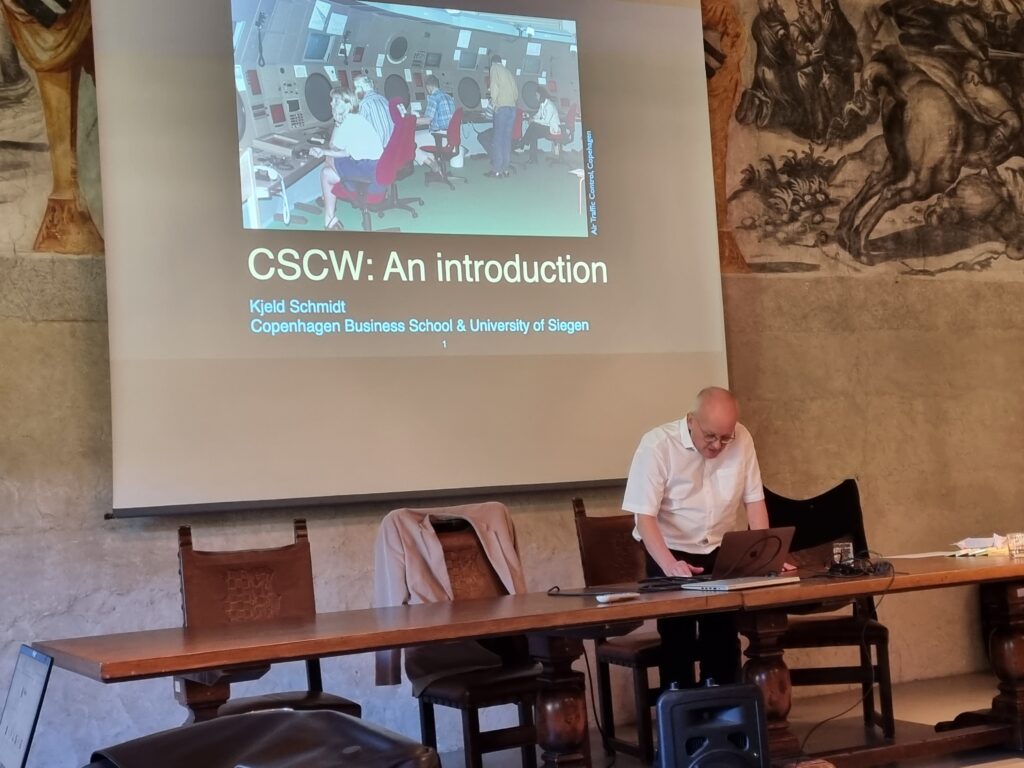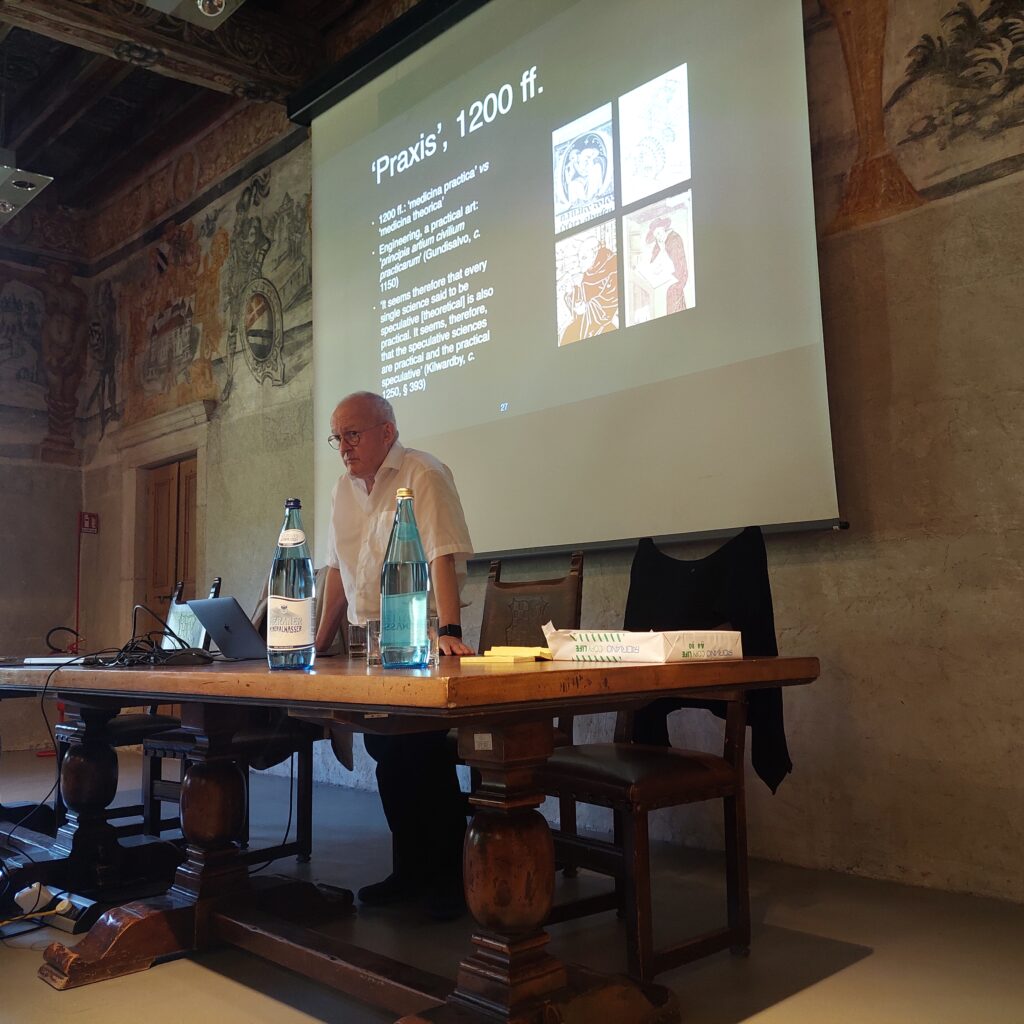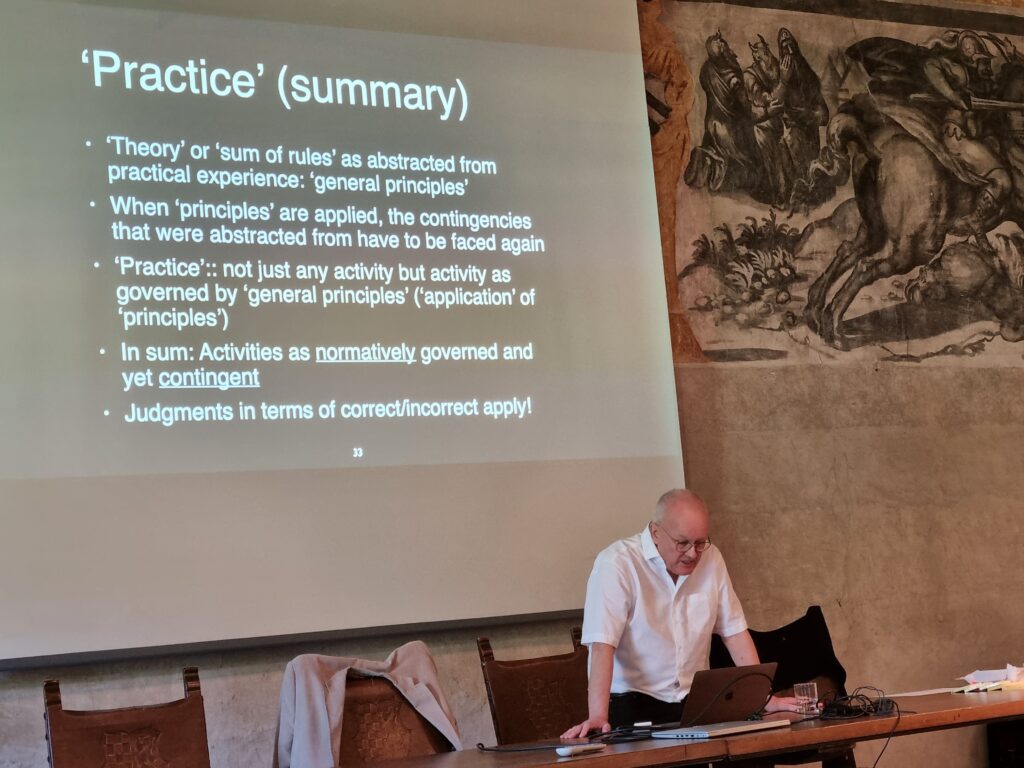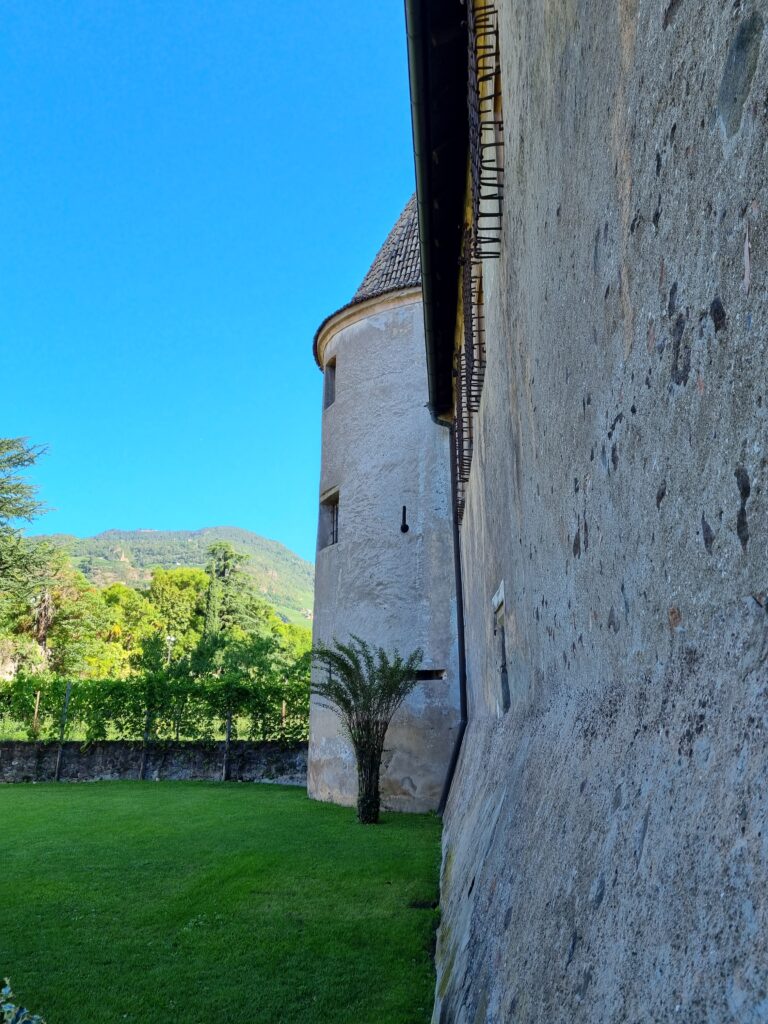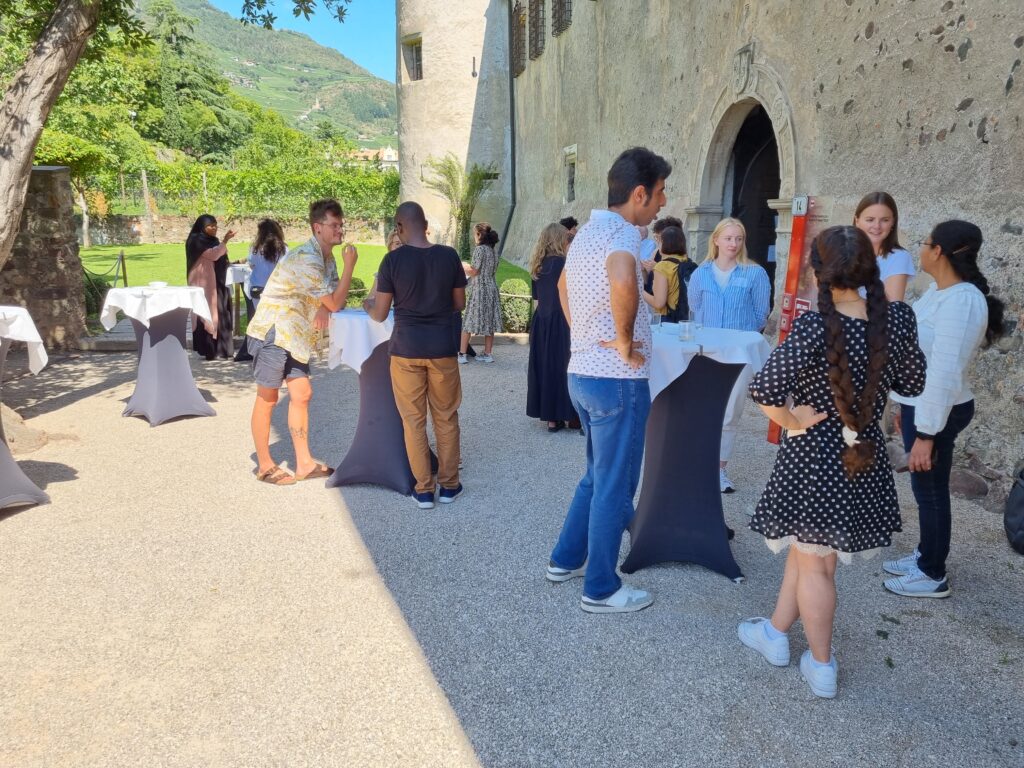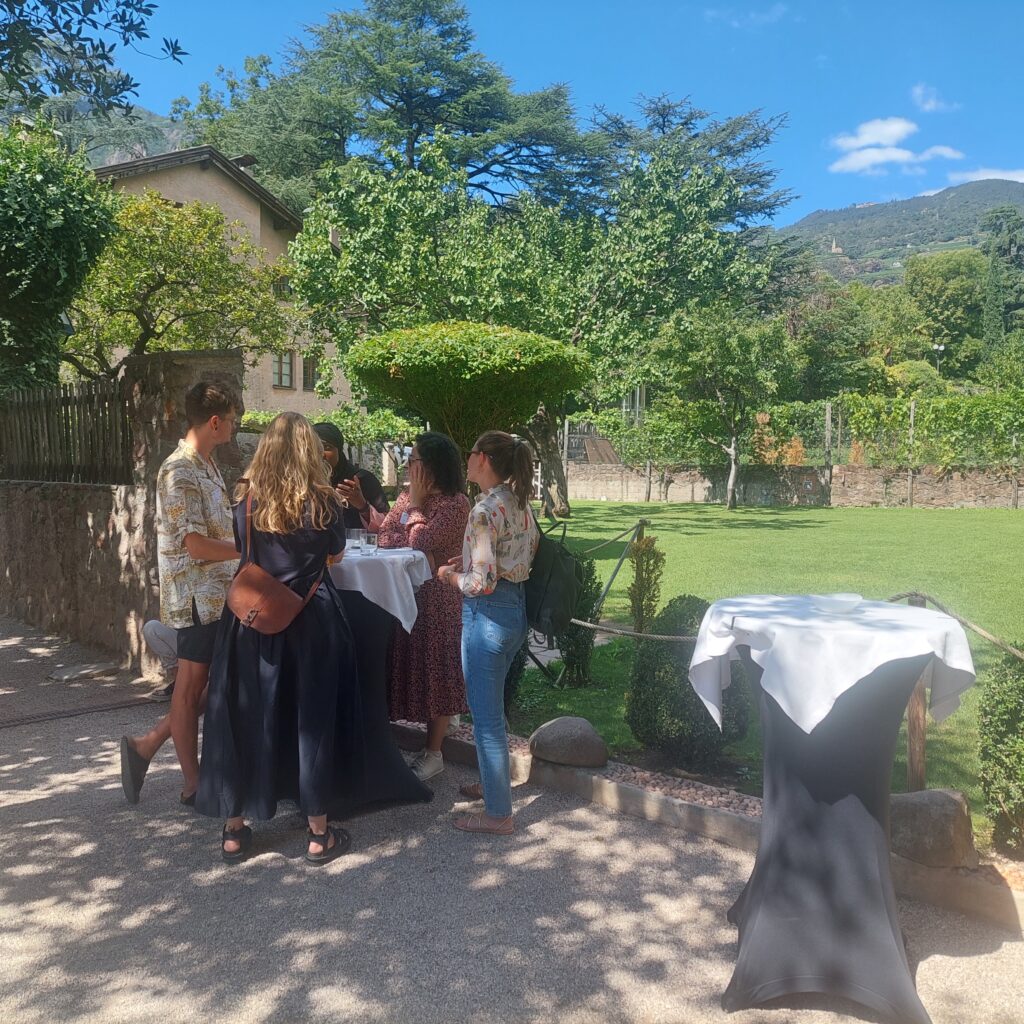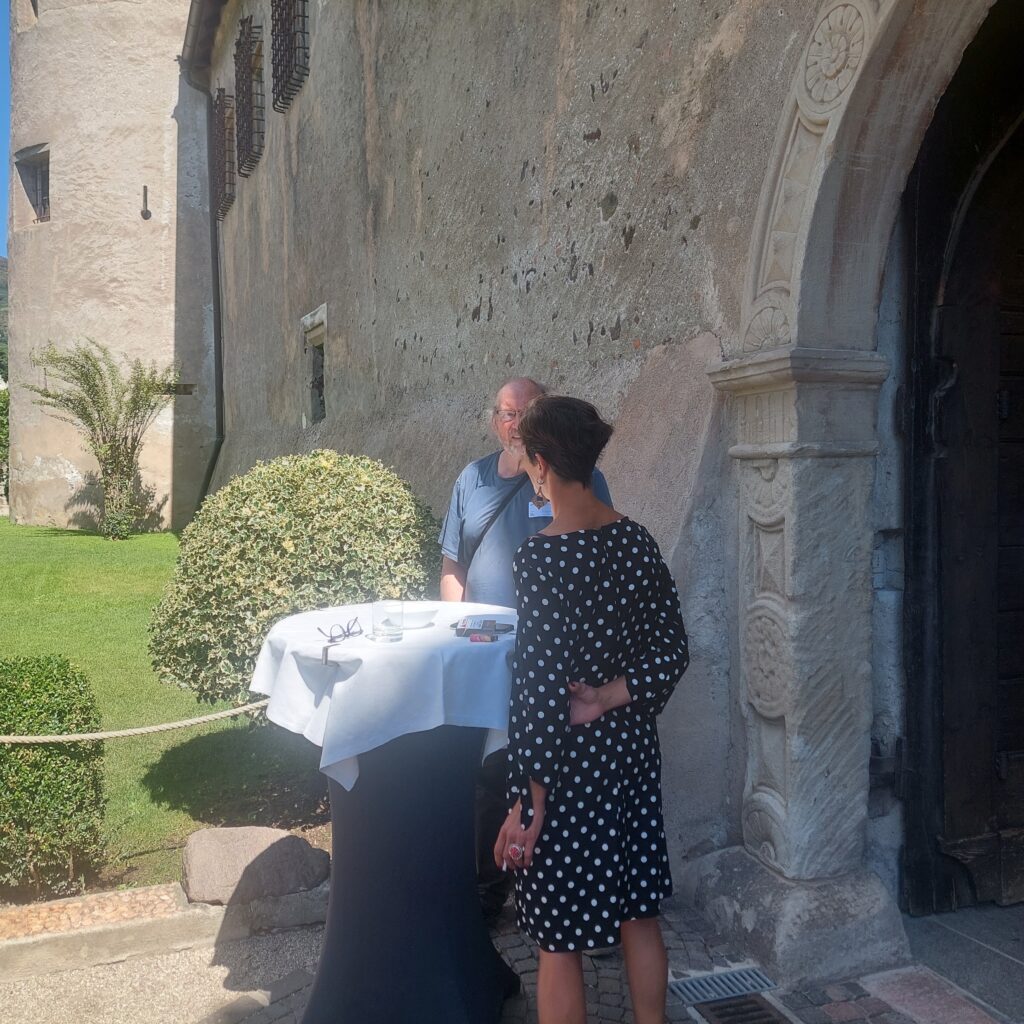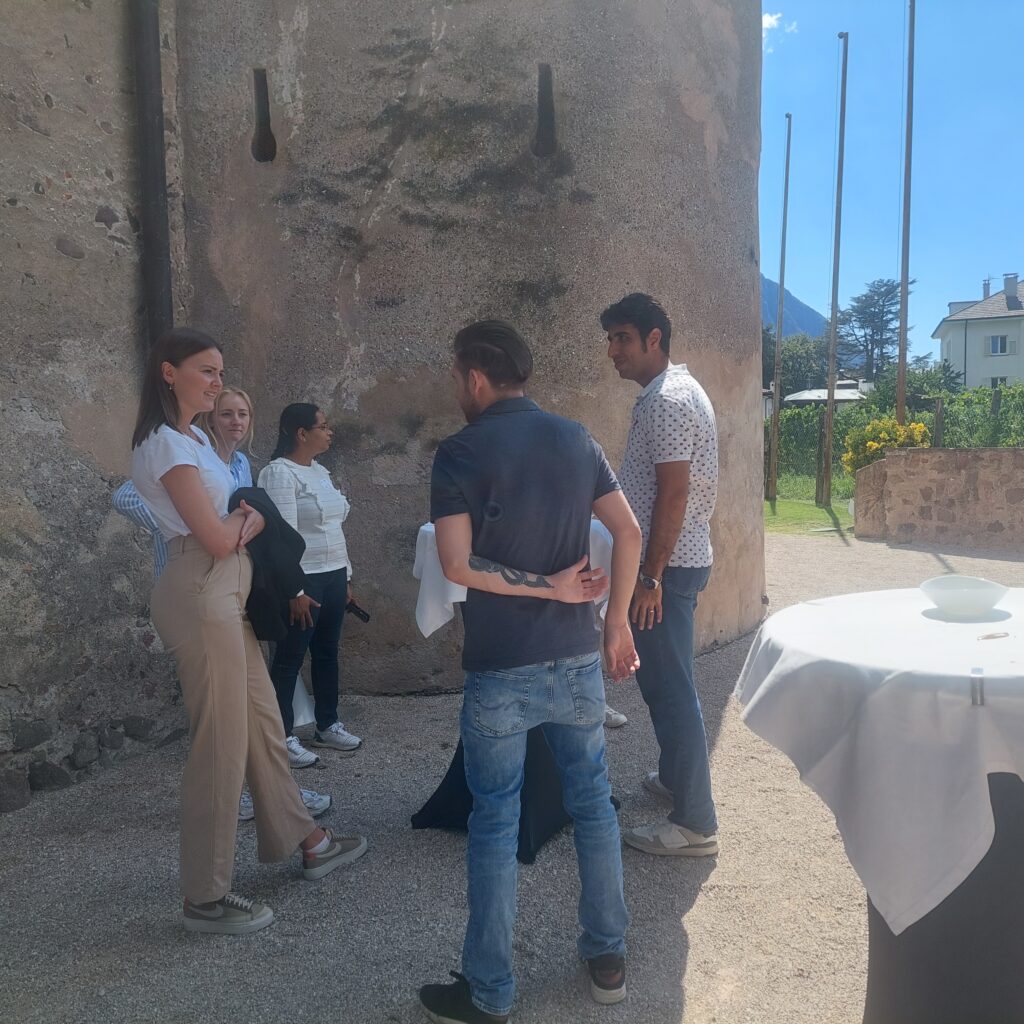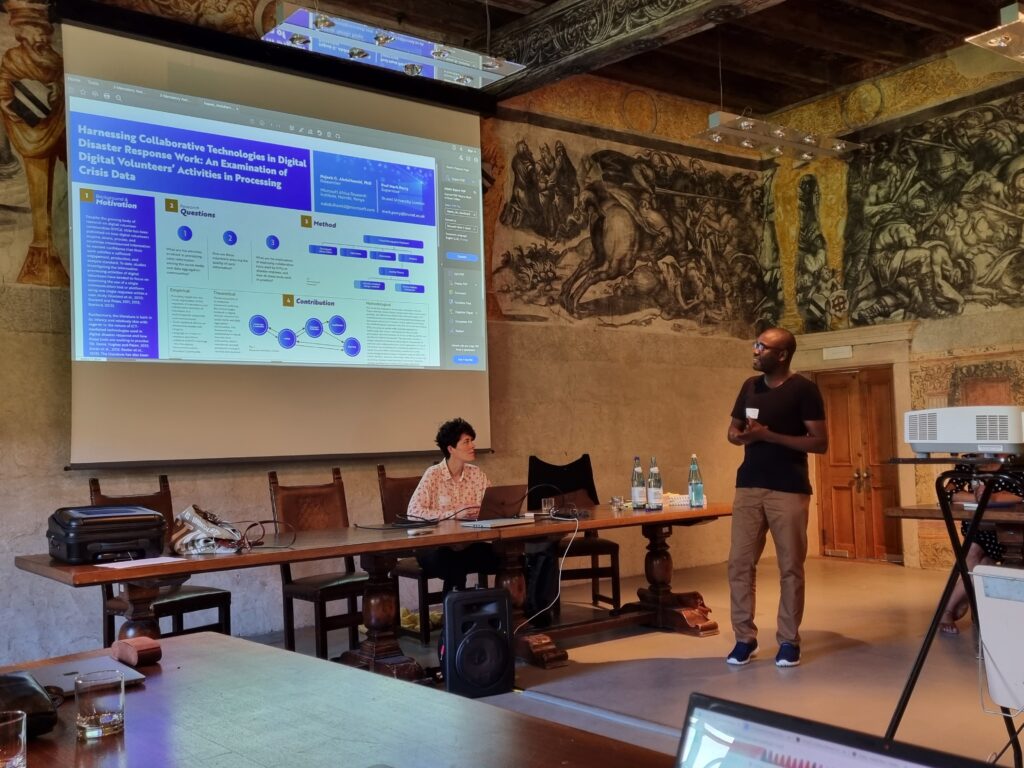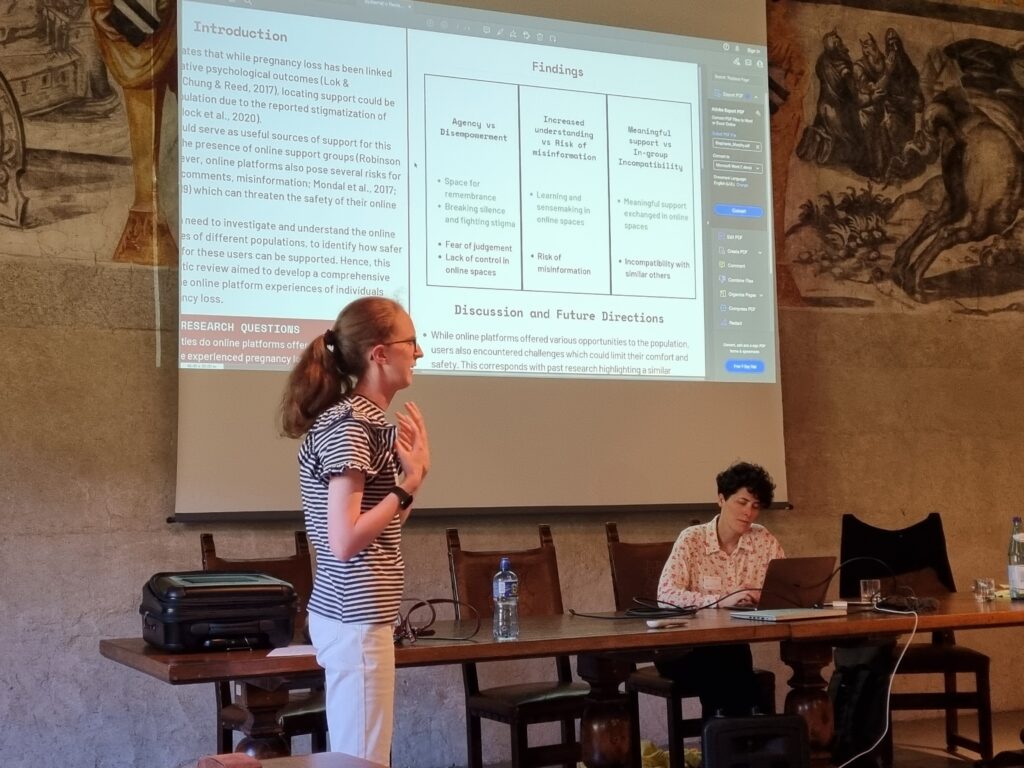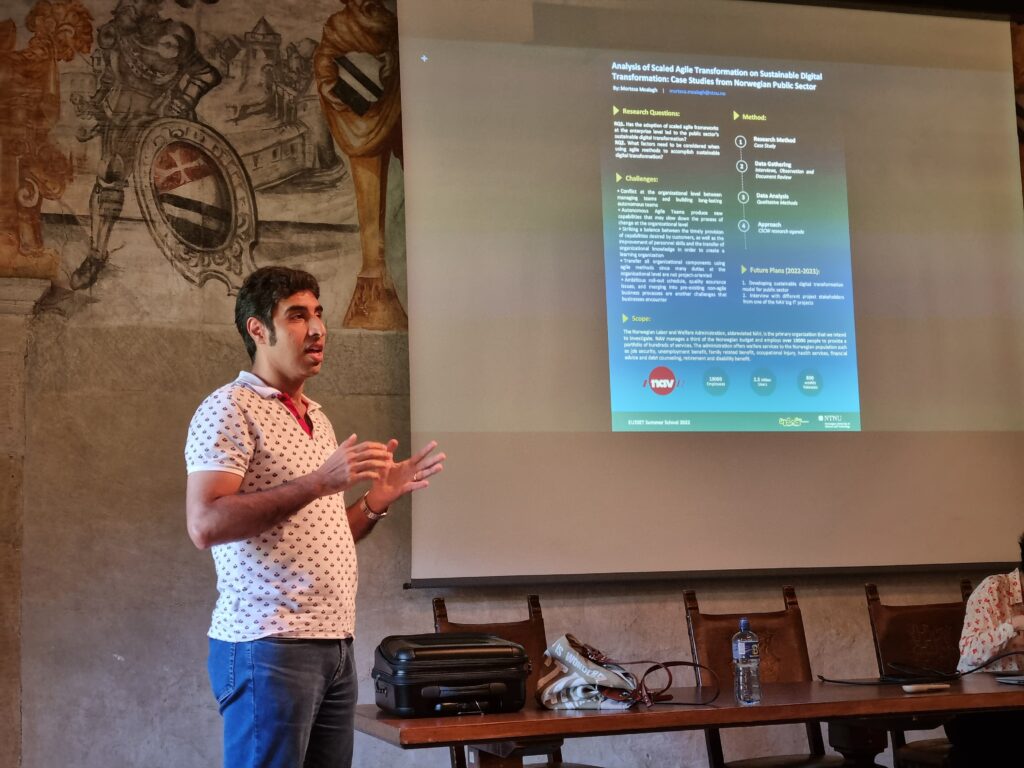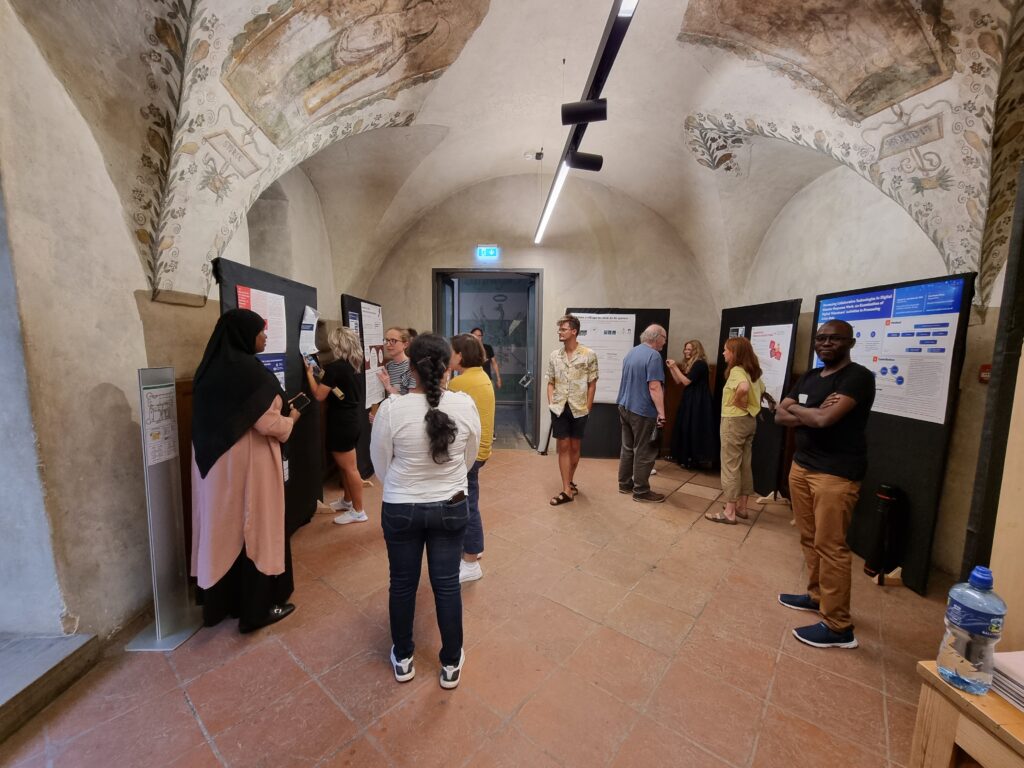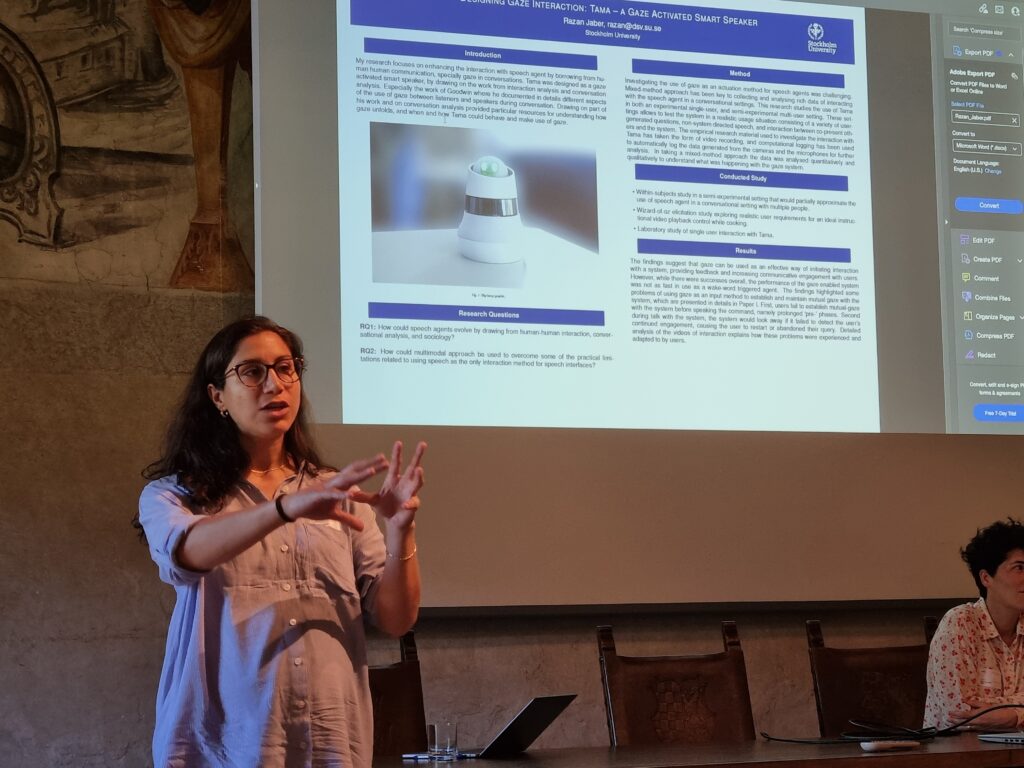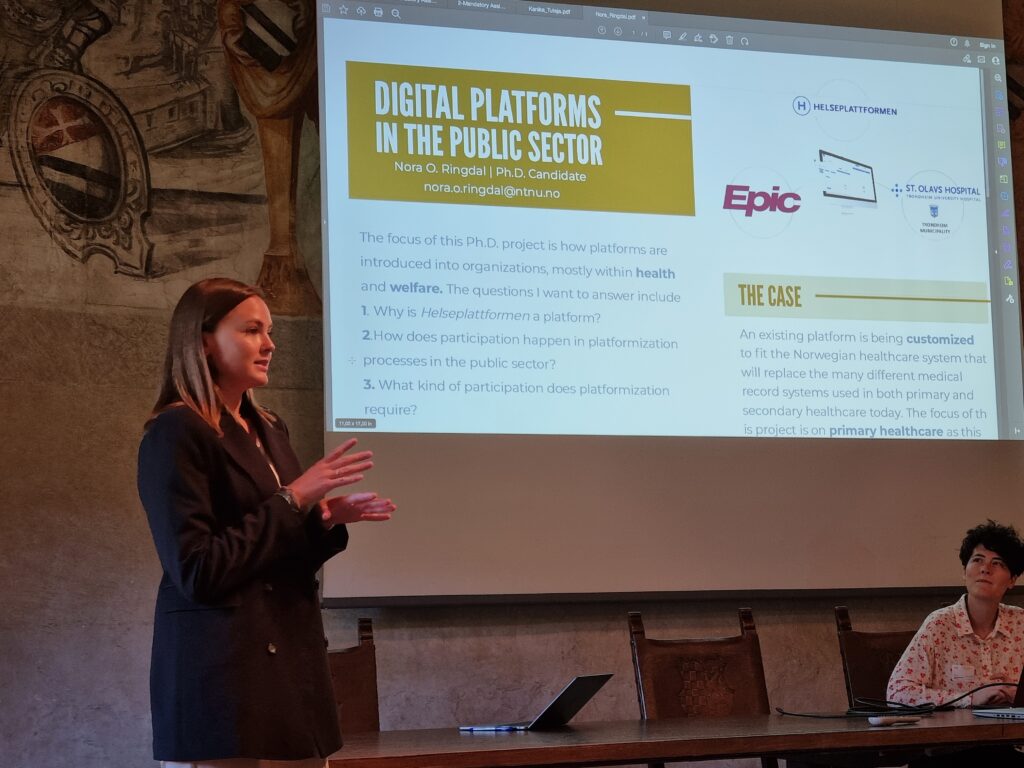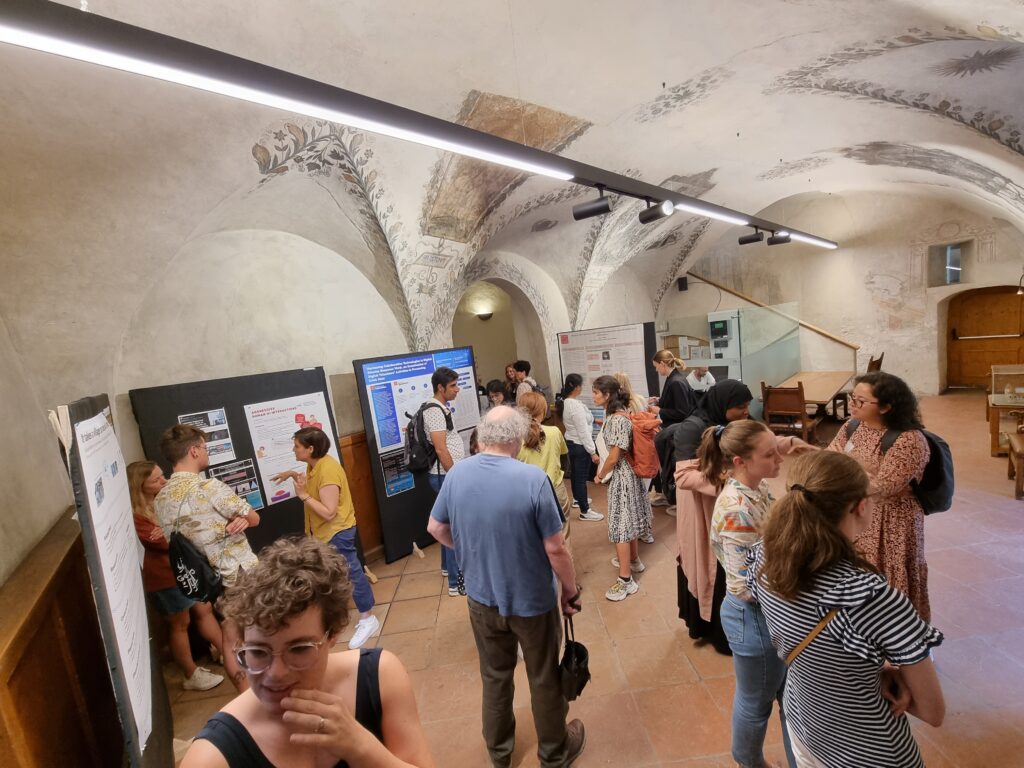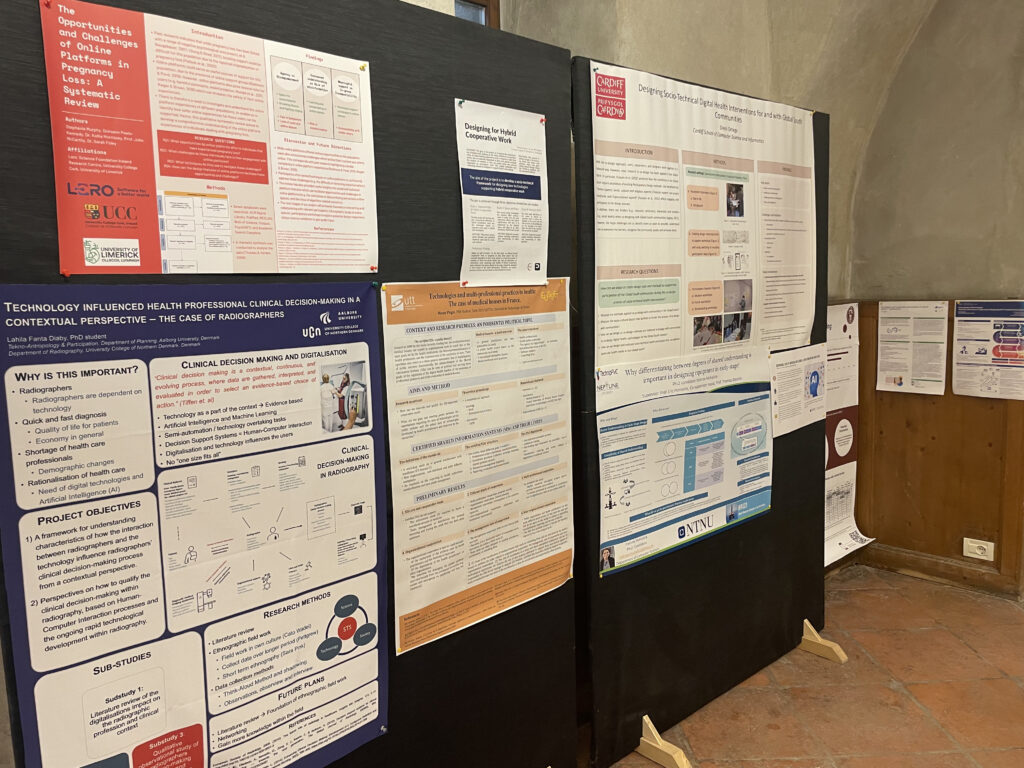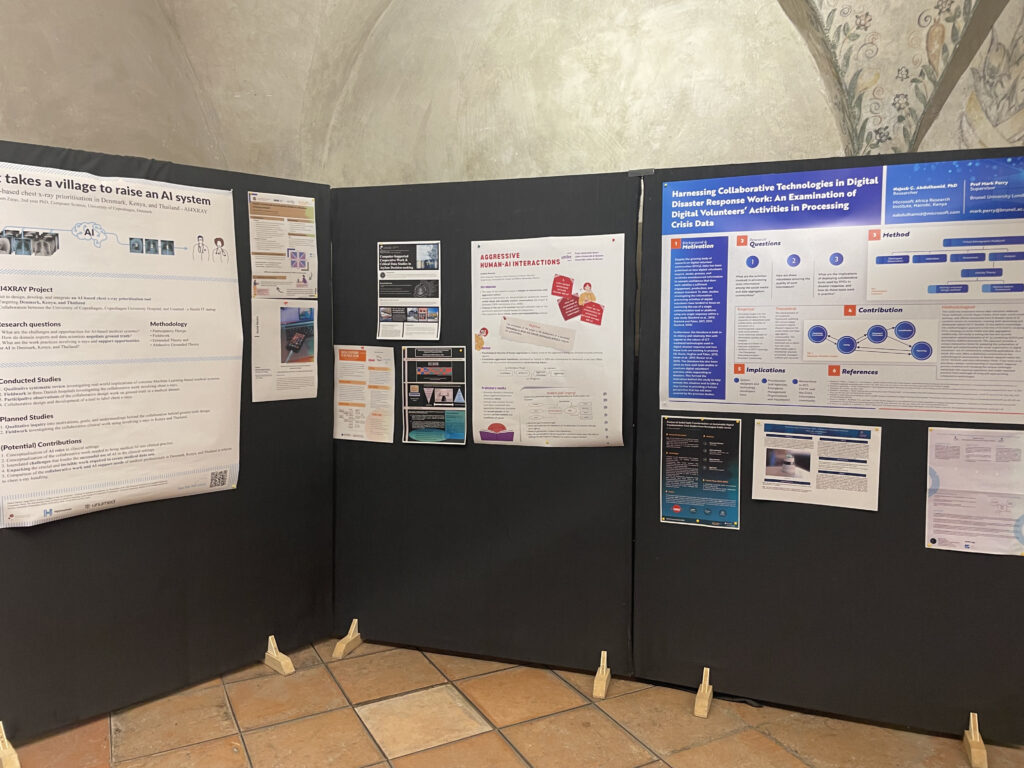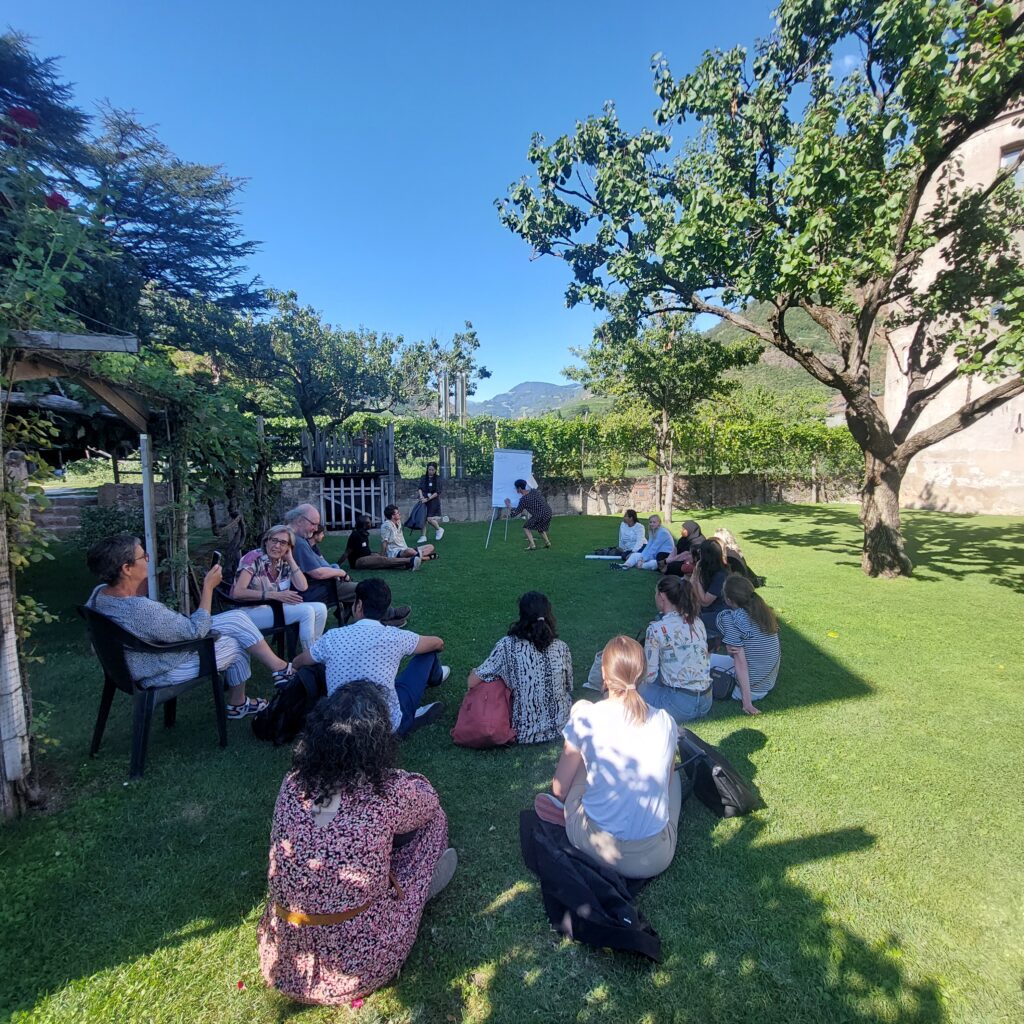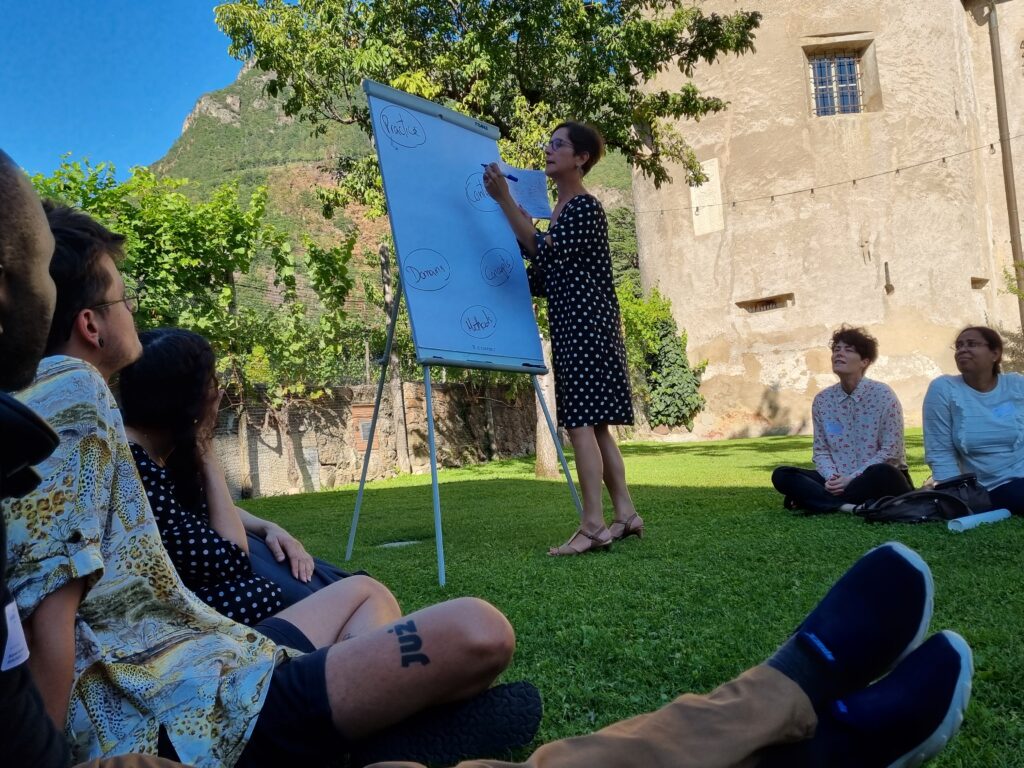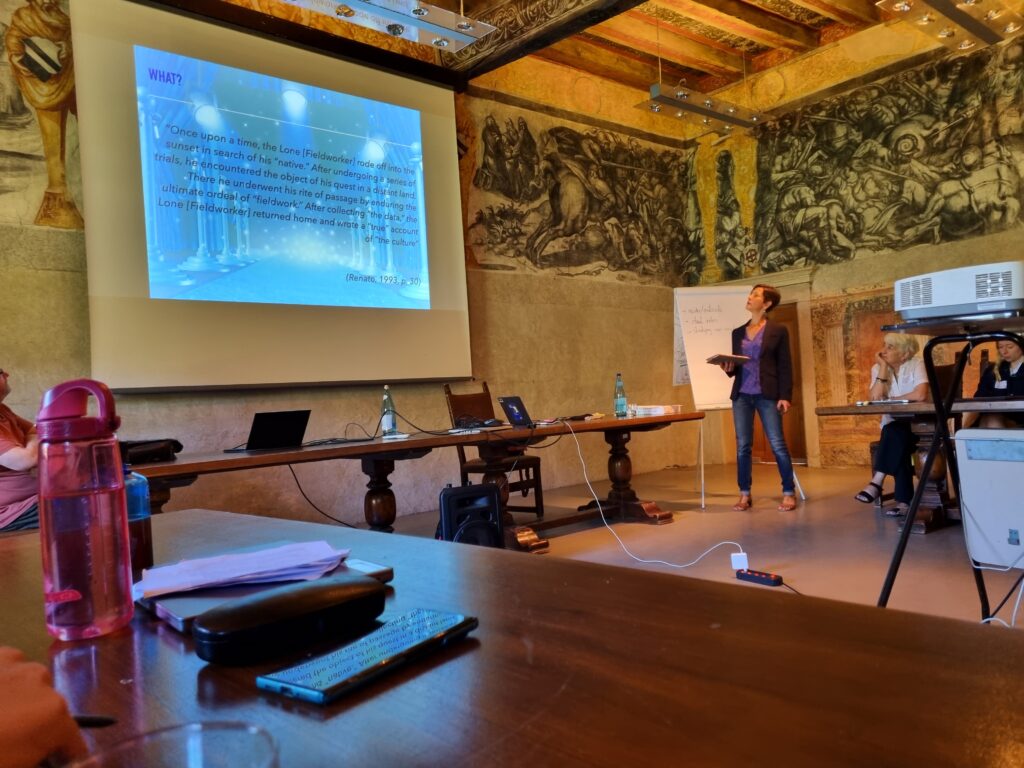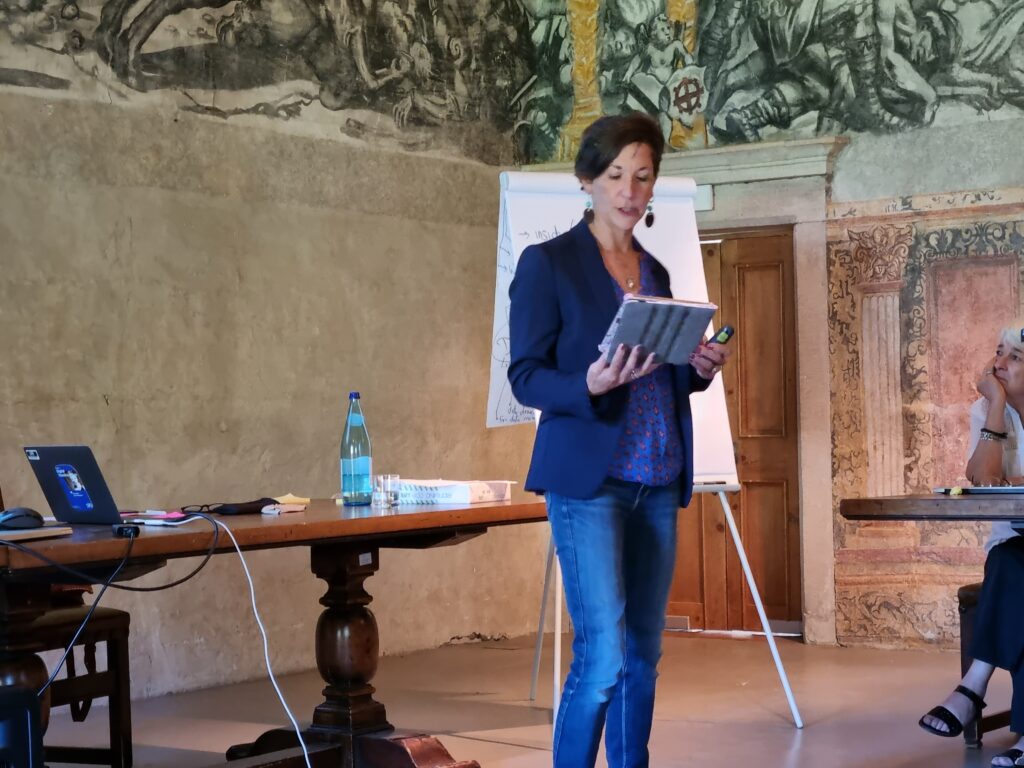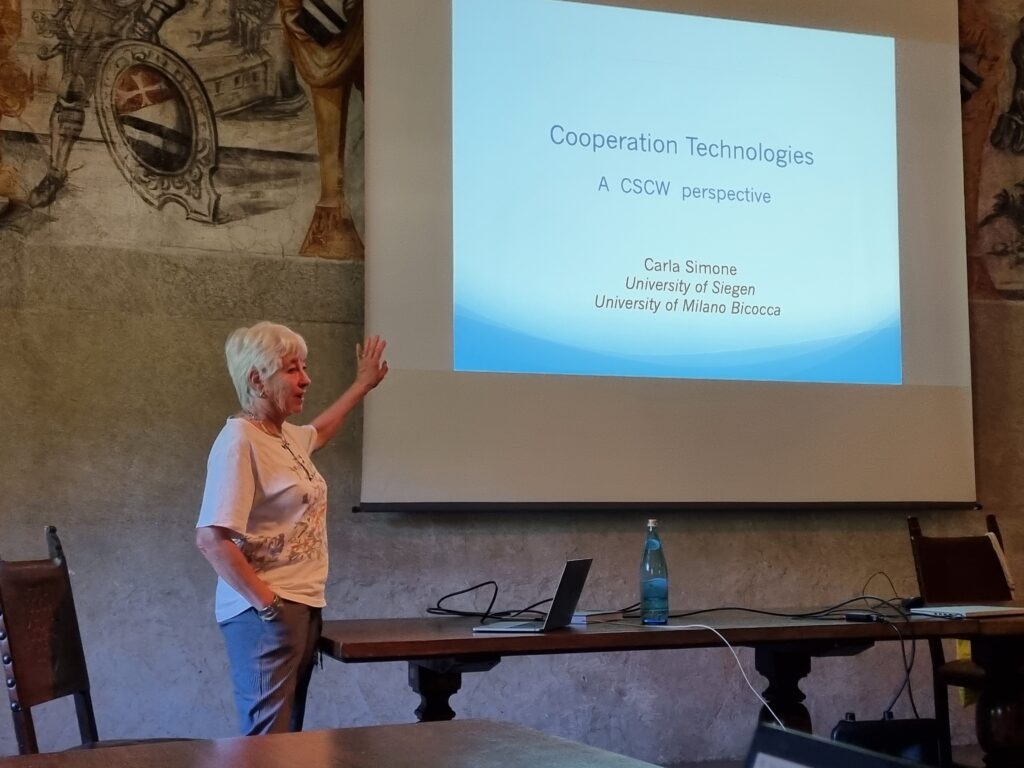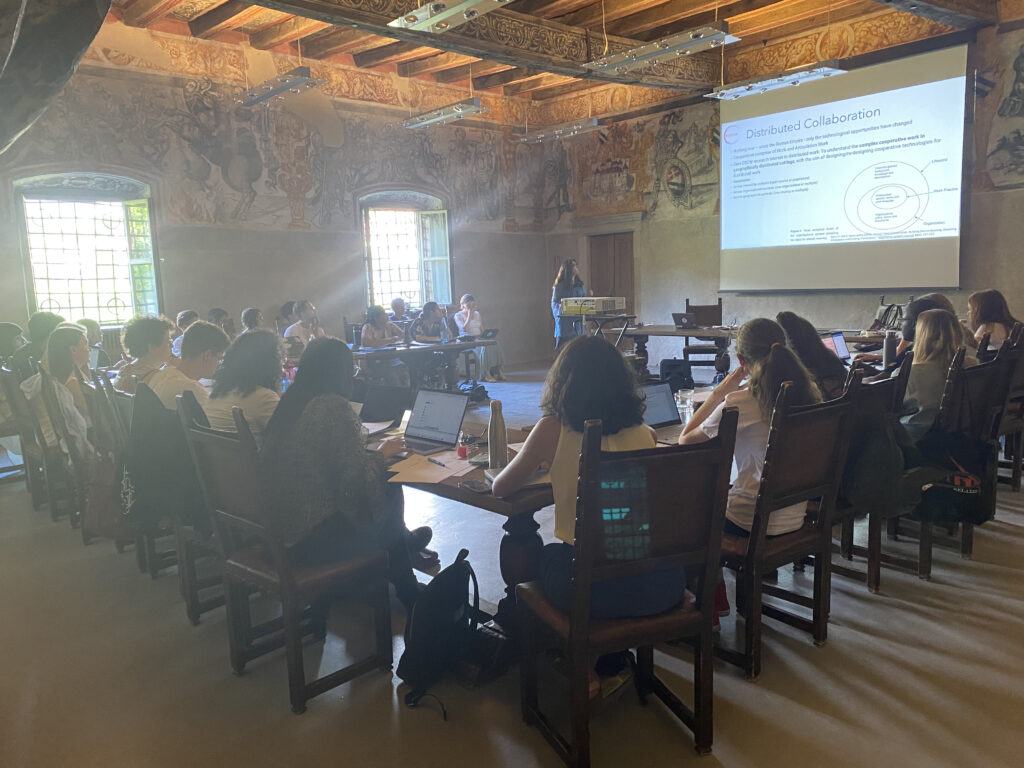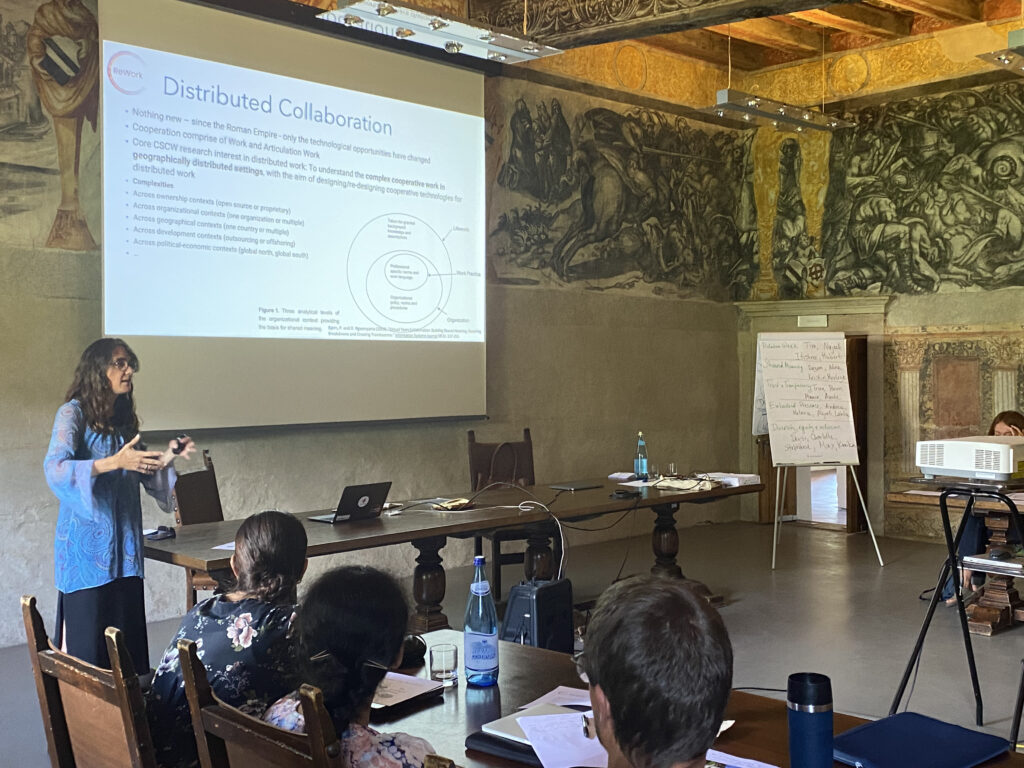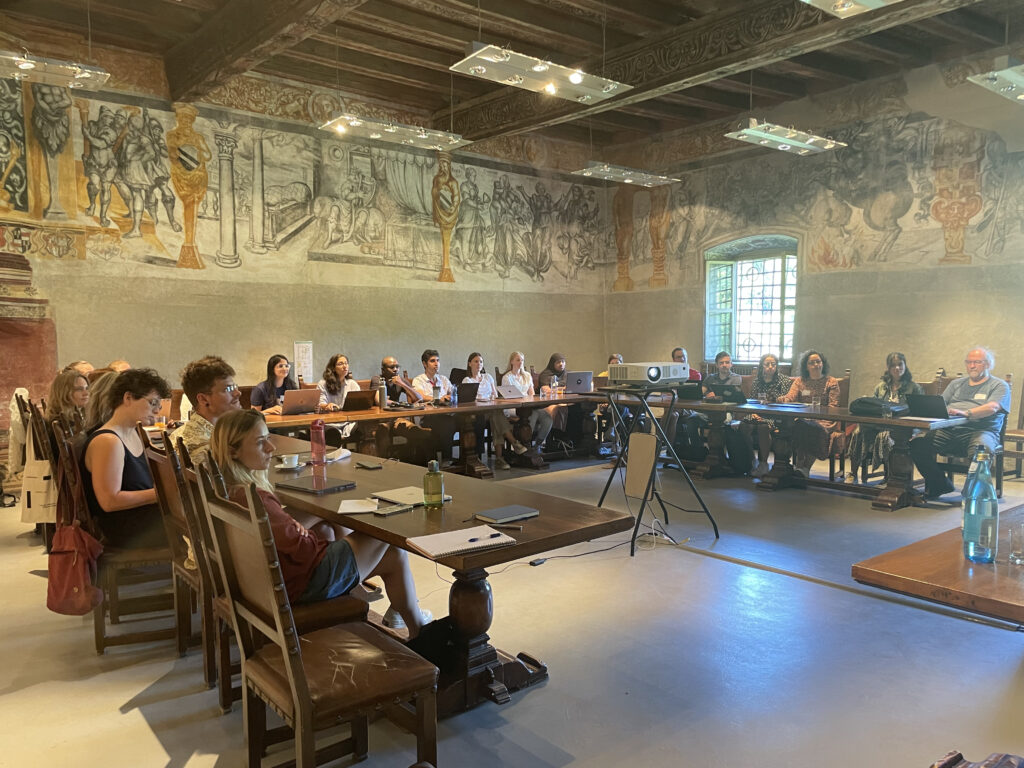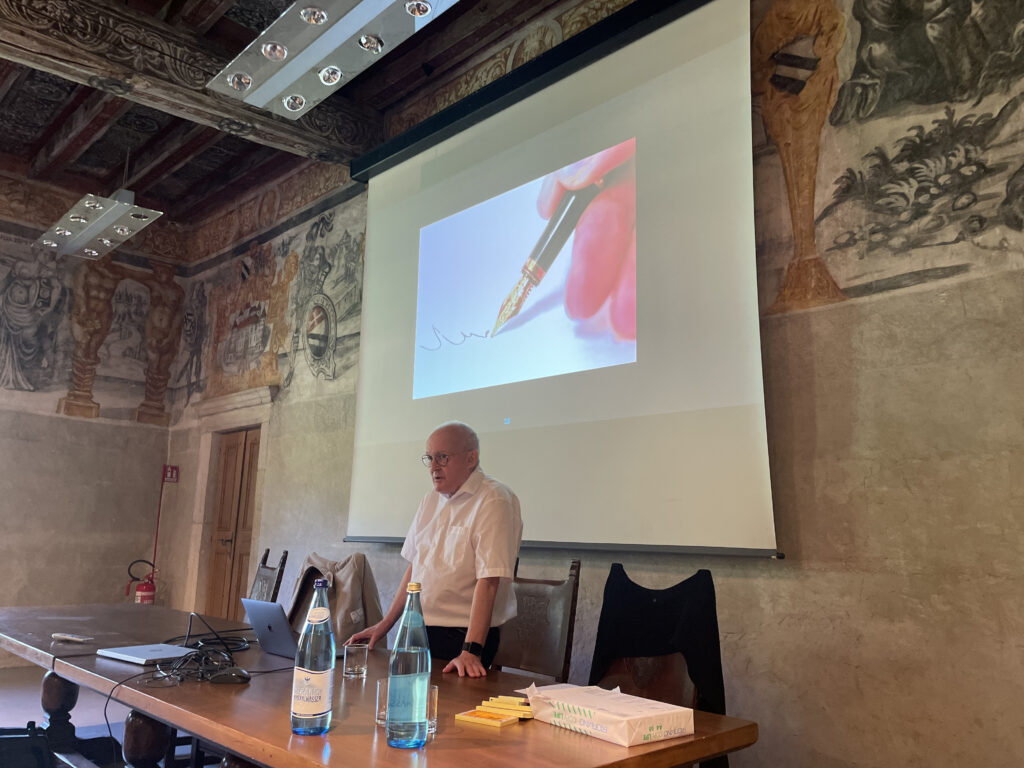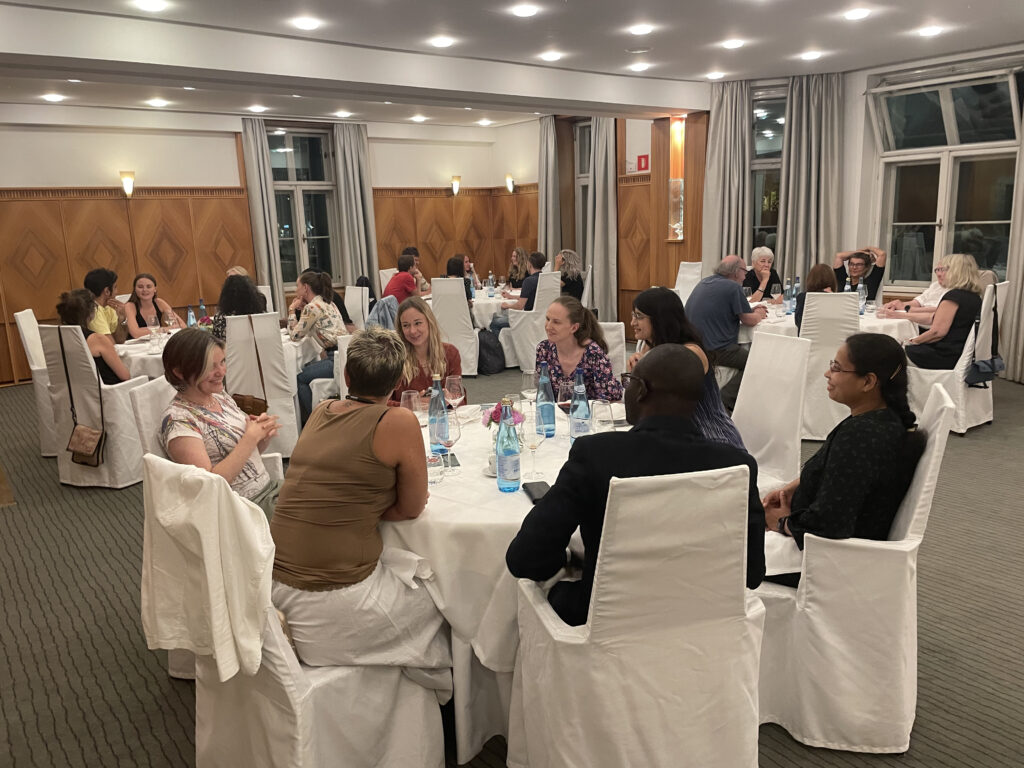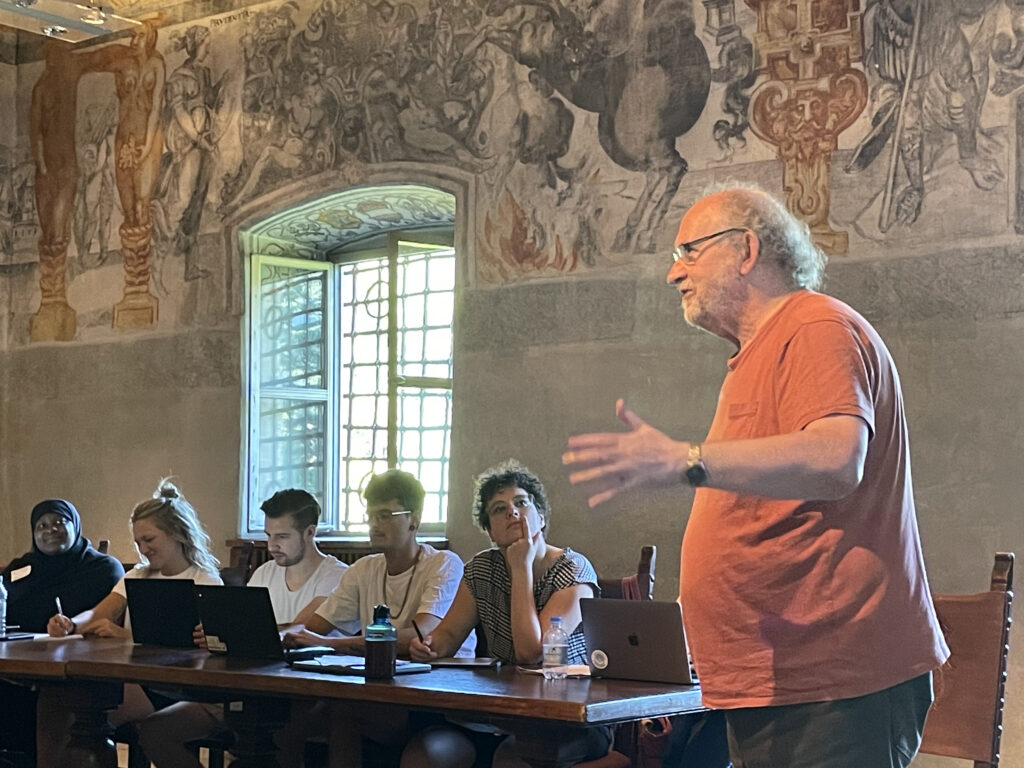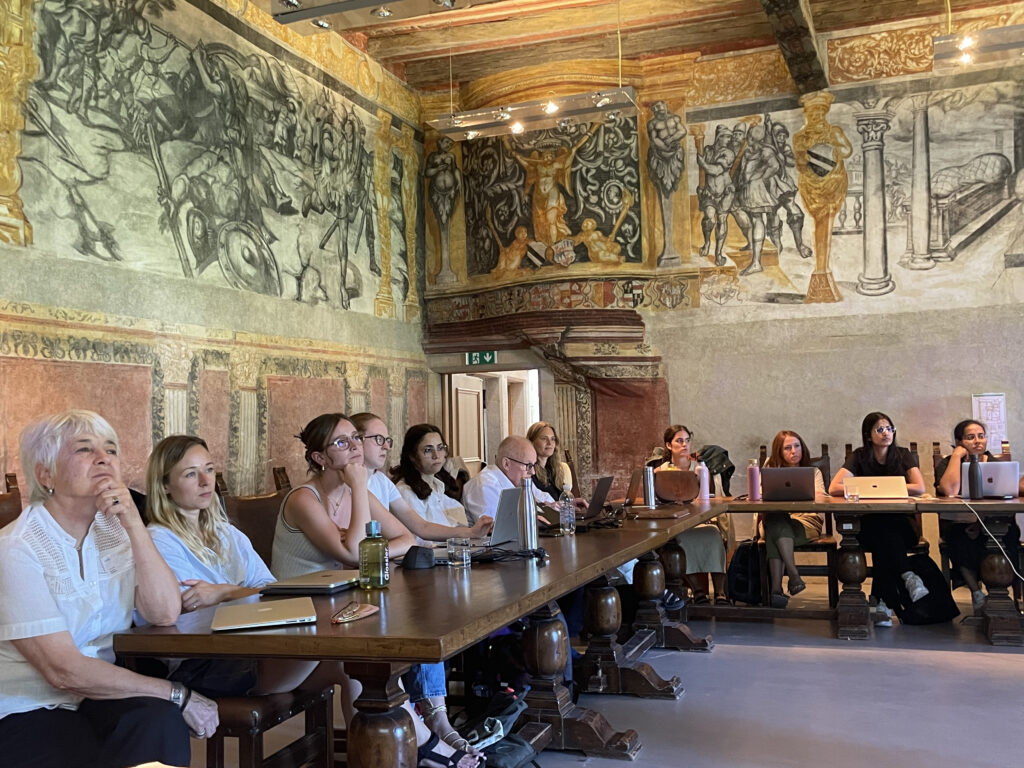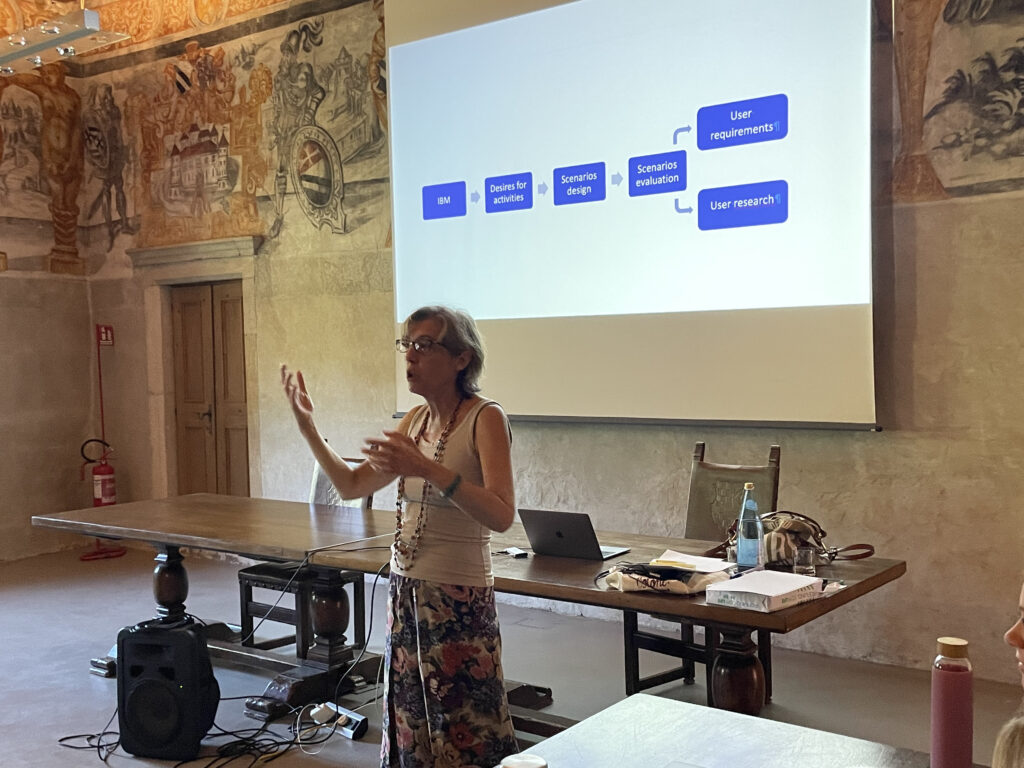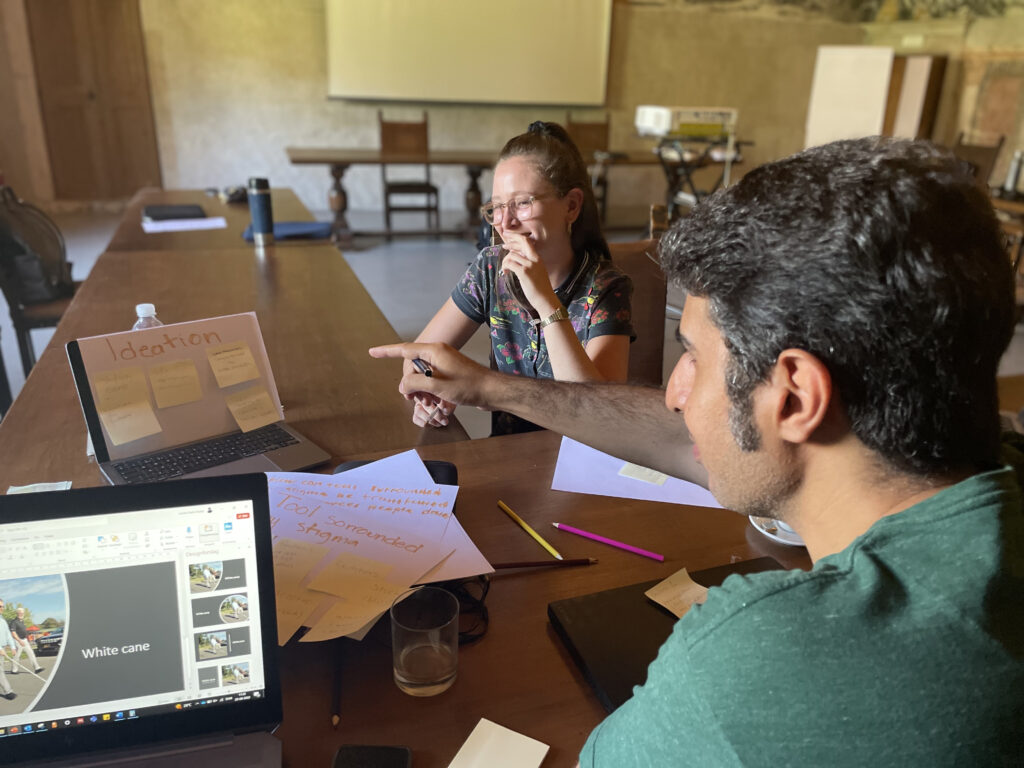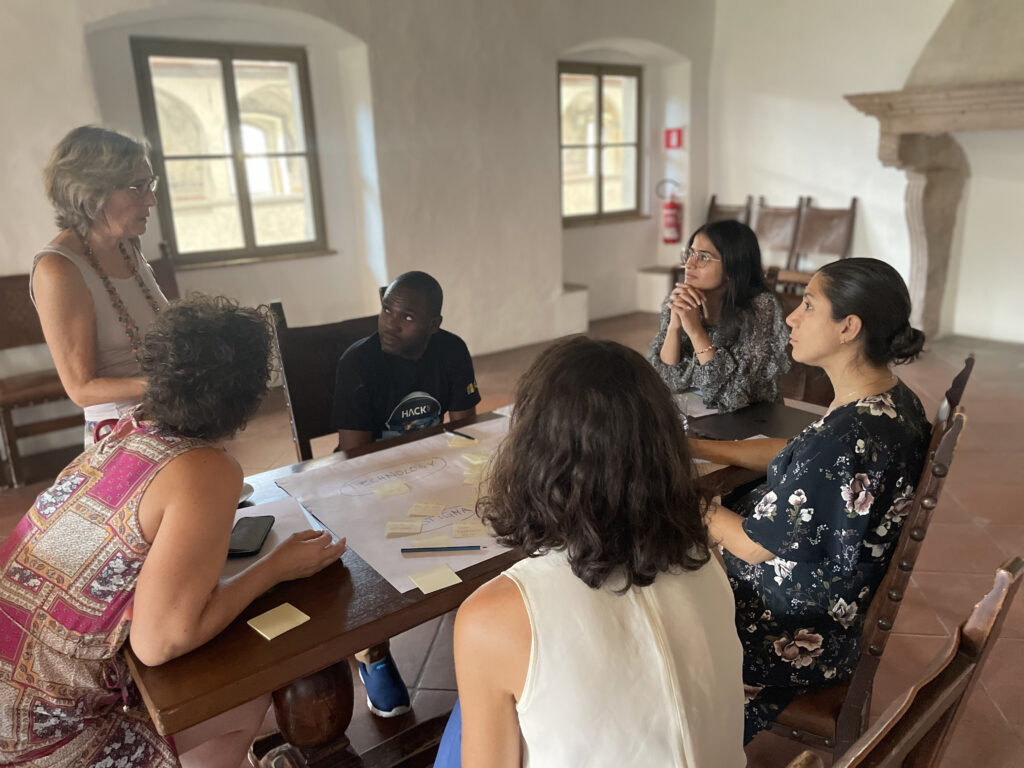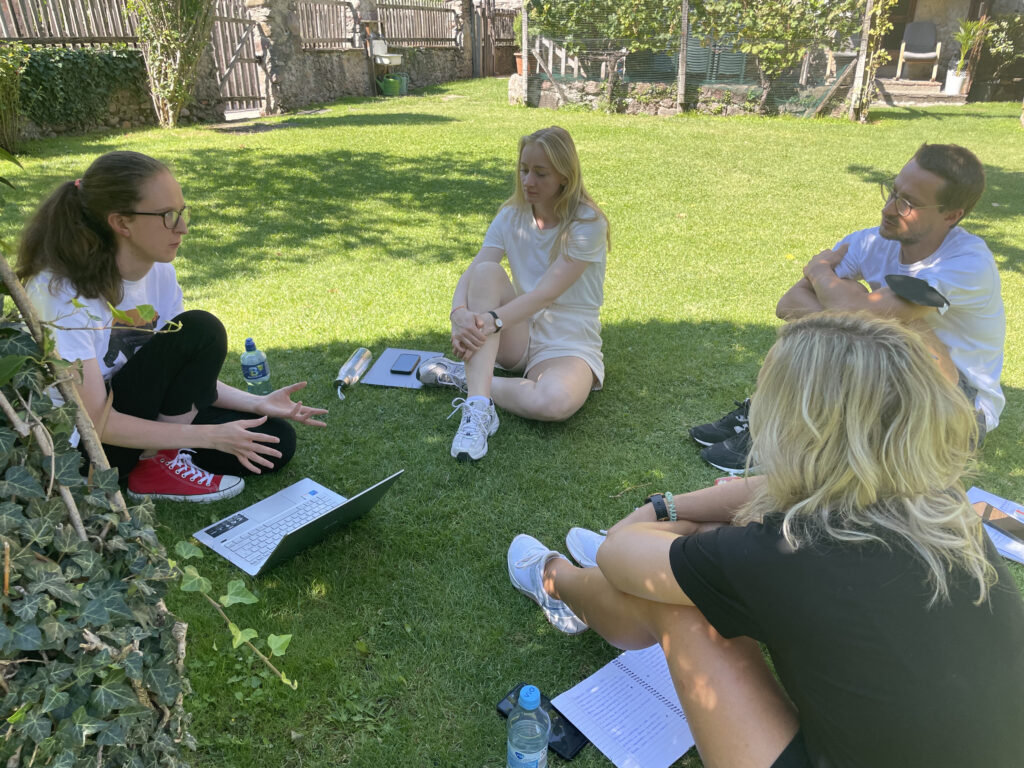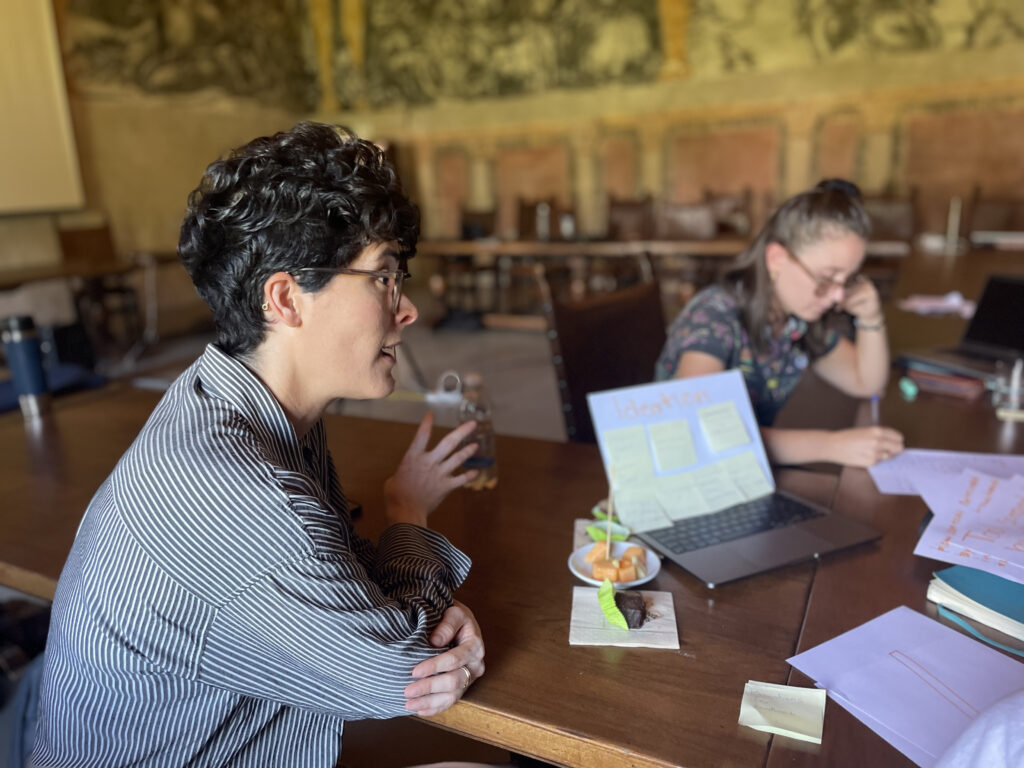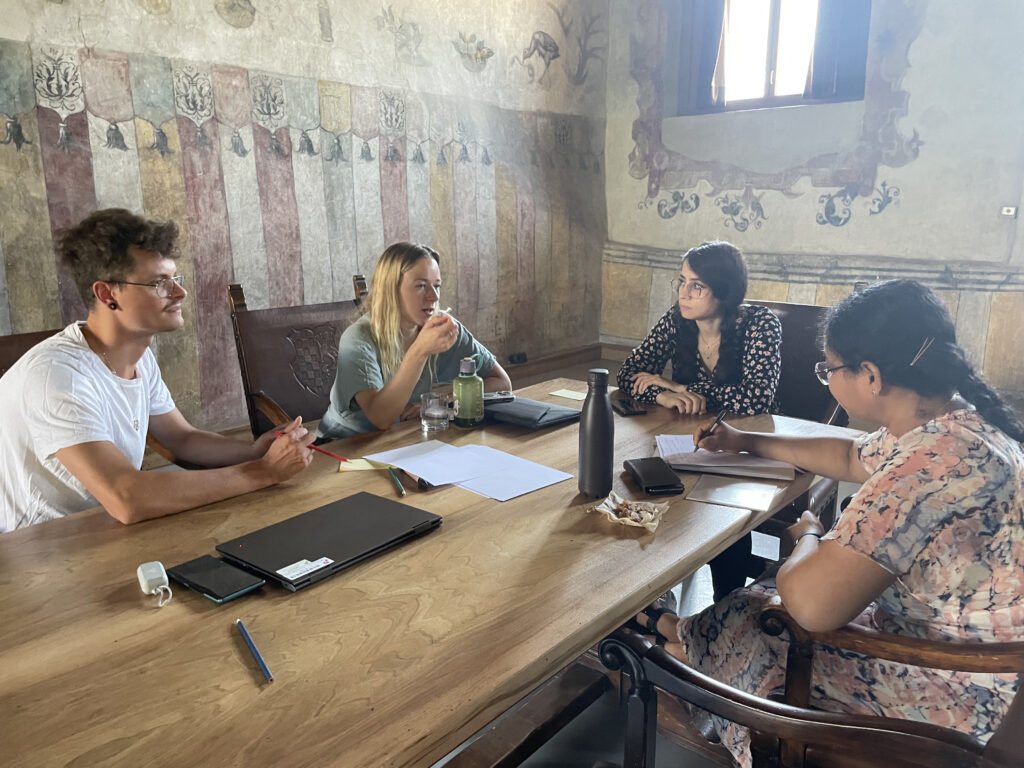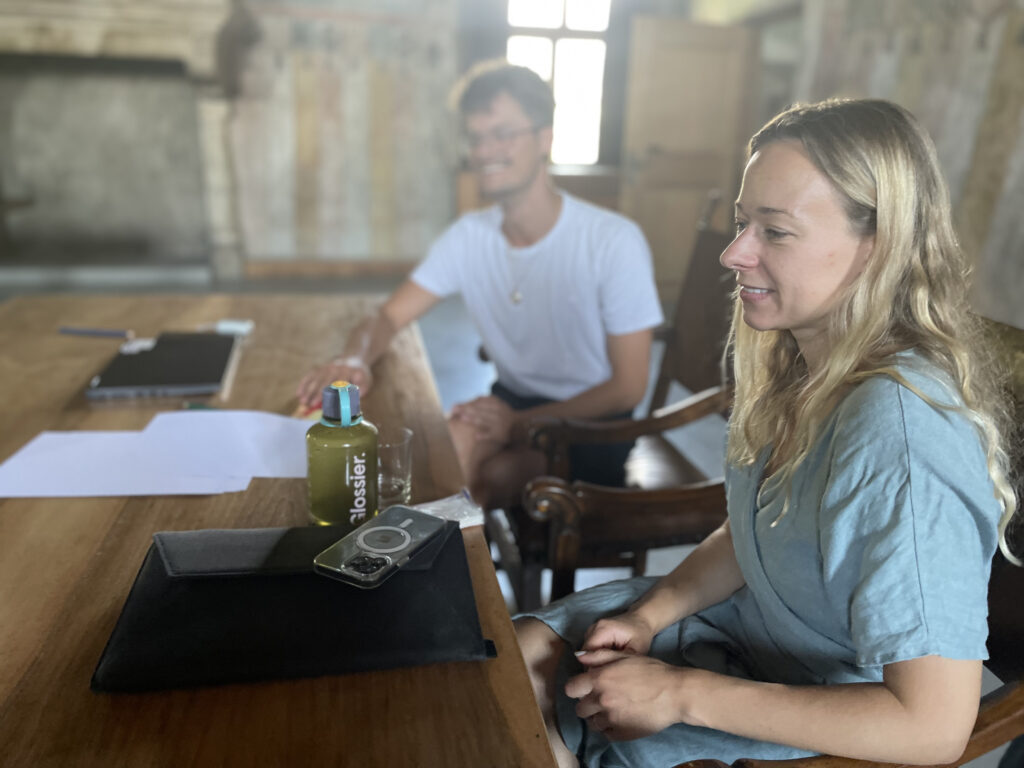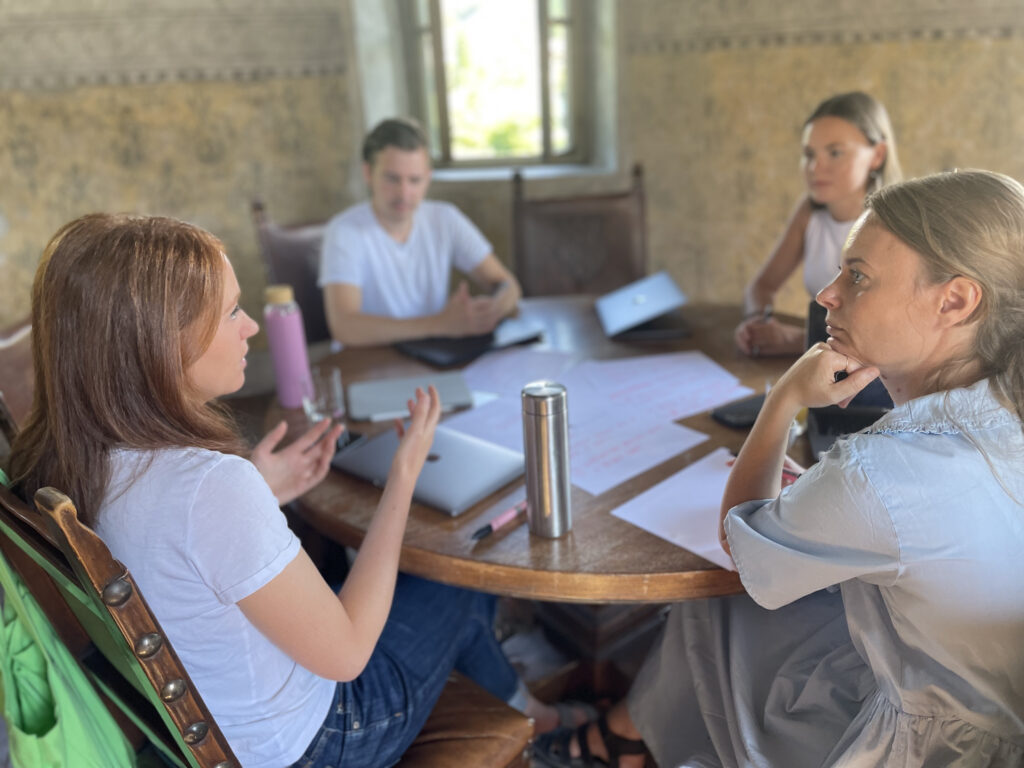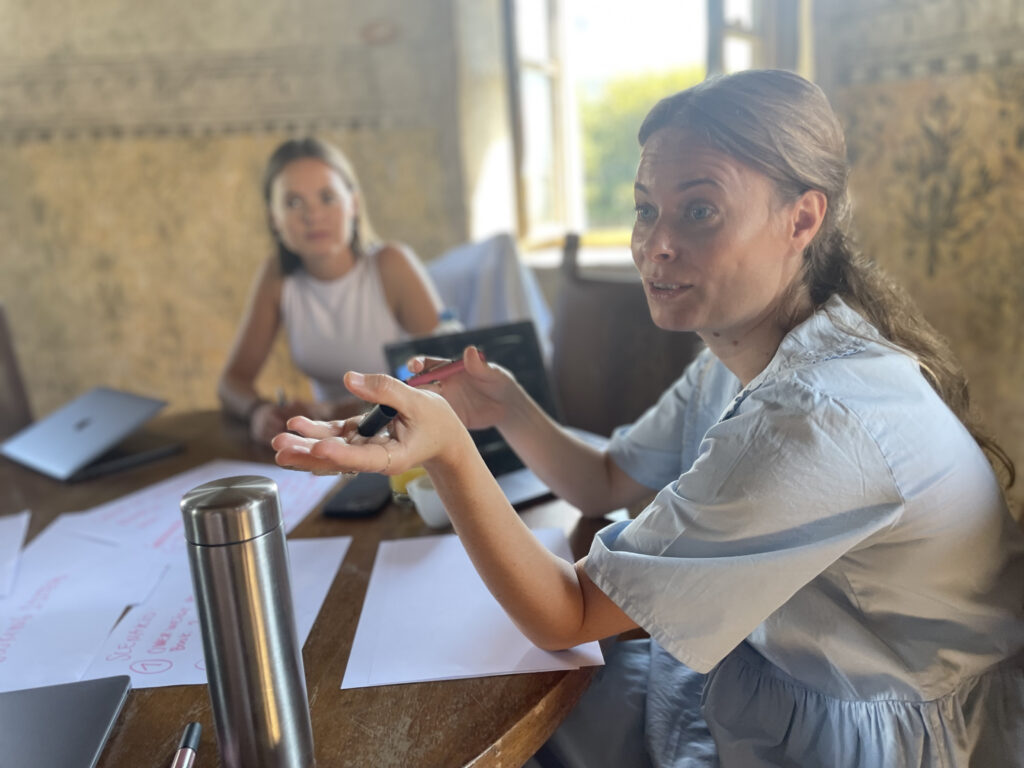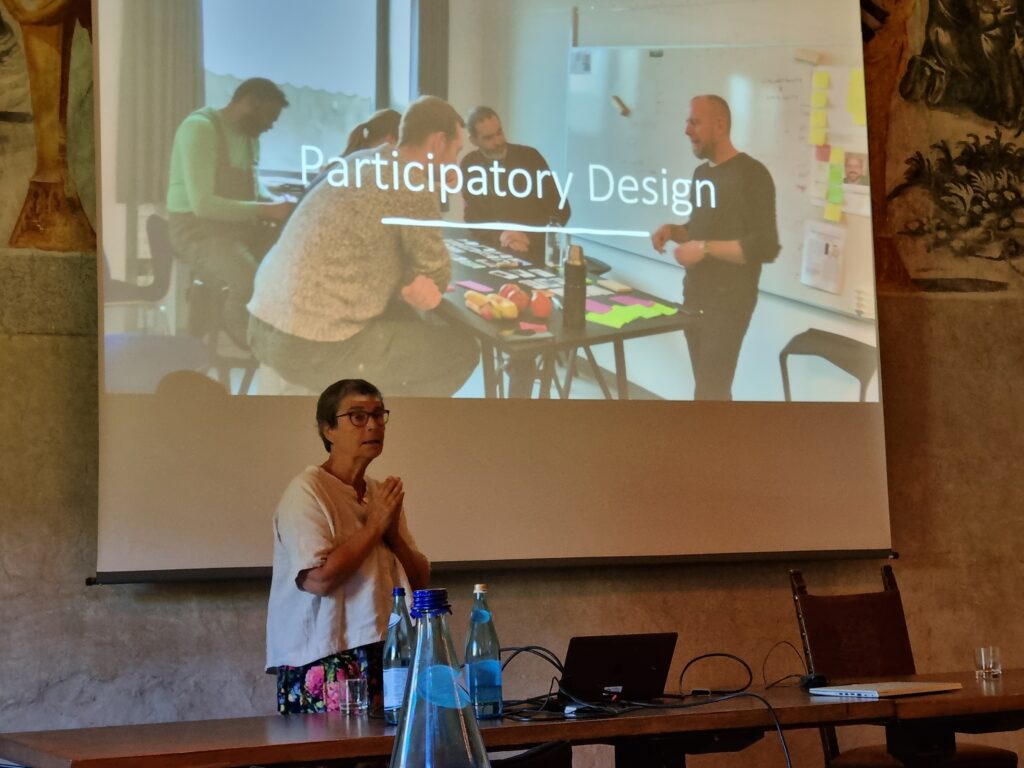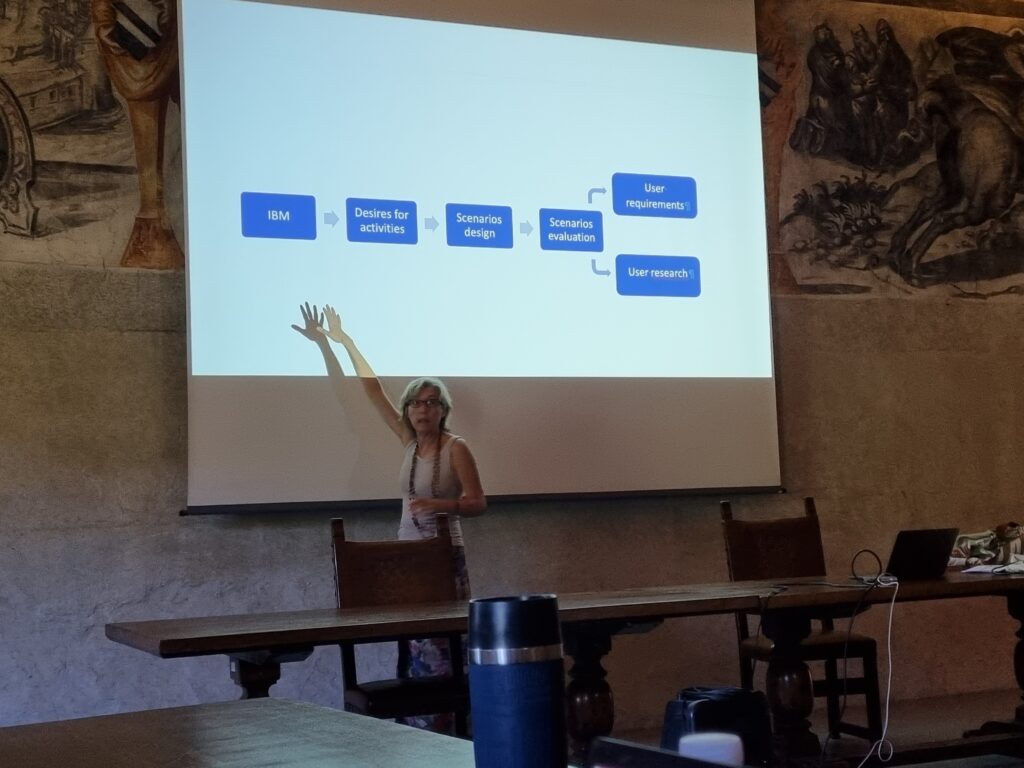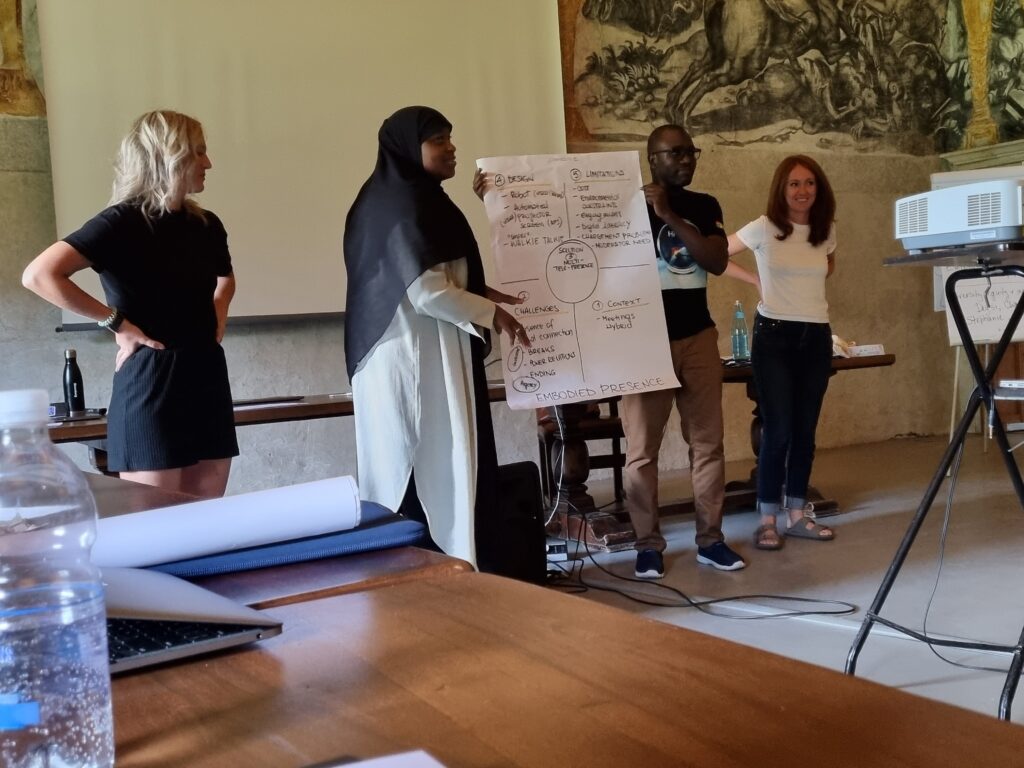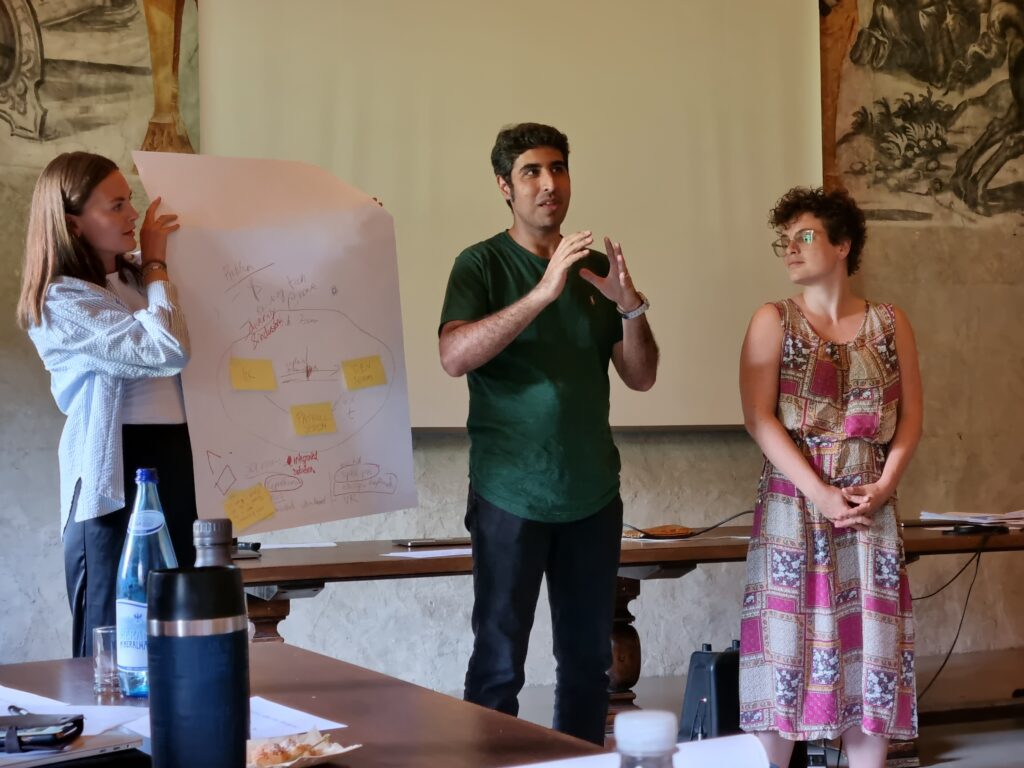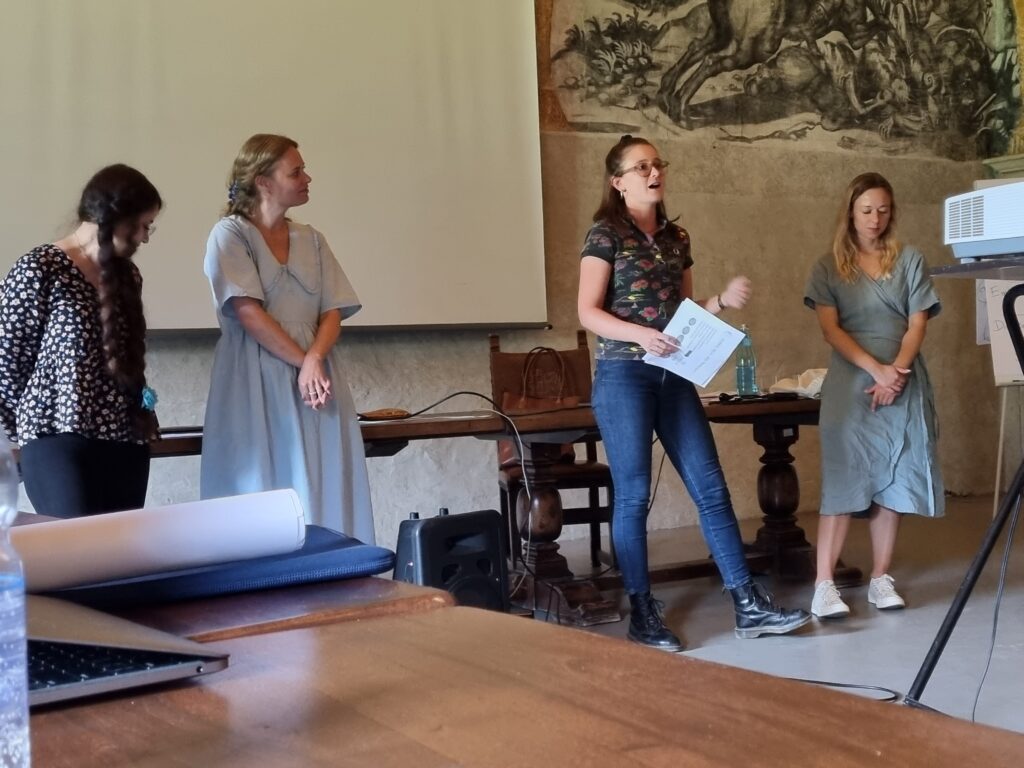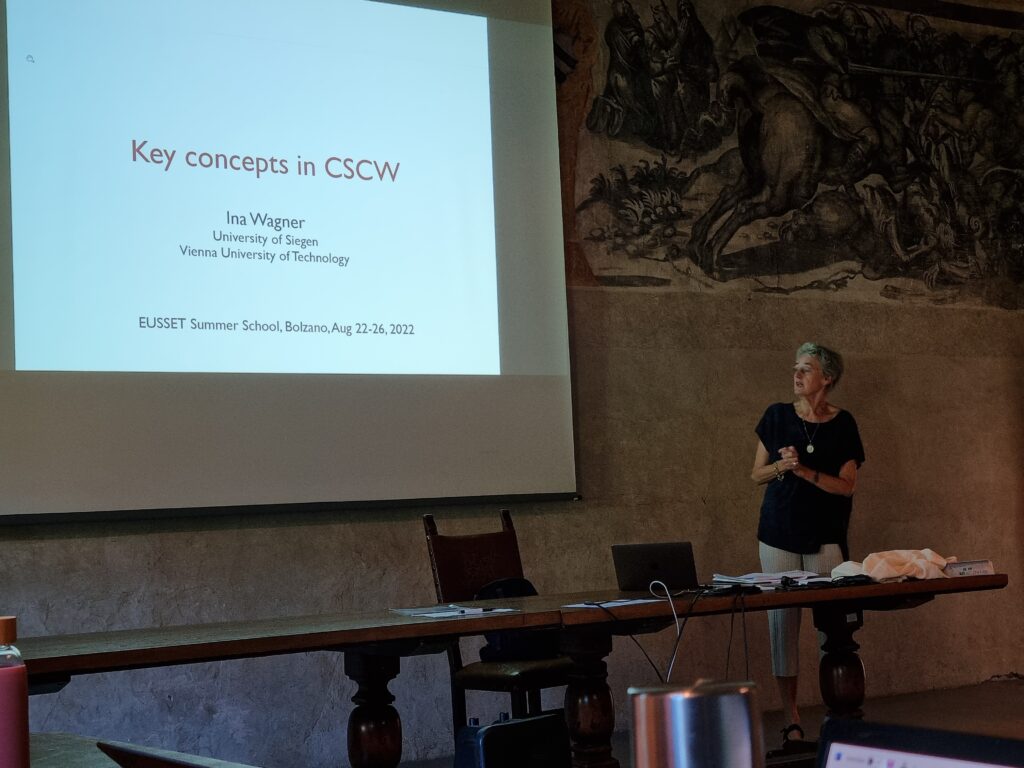Today, 22.08.2022, the EUSSET CSCW Summer School started for the first time in beautiful Bolzano, Italy. The whole week early career researchers have the opportunity to learn more about the background of Computer Supported Cooperative Work, to discuss with important figures of this discipline and to network with each other.
Day 1:
The first day of the Summer School 2022 started after the welcome and the presentation of the daily schedule by the organizers Maria Menendez Blanco and Nina Boulus-Rødje, with an introduction to the field of CSCW by sociologist and CSCW-researcher Prof. Dr. Kjeld Schmidt. Besides basics, motivations, the construction of CSCW, exemplary studies and the evolving nature of CSCW-research, special focus was put on the practice-centeredness of CSCW-research and the concept of practice. In an exemplary case study, Prof. Dr. Kjeld Schmidt described methodologies and aspects of the practice of workers, which in particular brings ethnography into focus.
After this informative and rich presentation, the participants had the opportunity to present their work and their PHD projects / PHD topics. For this purpose, the participants presented in advance prepared posters in front of the whole group, before these posters were discussed individually in a poster session afterwards.
The following PHD topics were presented by the participants:
- Aggressive Human-AI Interactions
- Expert-orientated explainability design in a decision-making context
- Responsible use of artificial intelligence: A study from the welfare sector
- Designing Socio-Technical Digital Health Interventions for and with Global South Communities
- It takes a village to raise an AI system – Collaborative work on multicultural x-ray prioritisation software
- Why differentiating between degrees of shared understanding is important in designing equipment in early-stage?
- Inclusive Design for an Intelligent Wheelchair in a Developing Region
- Destabilising Data in Nordic Asylum Decision-making
- Technology Influenced Health Professional Clinical Decision Making in a Contextual Perspective the Case of Radiographers
- Technologies and multi-professional practices in health: The case of medical houses in France
- Emancipatory Self-Tracking: Towards a Sociocultural Approach to Designing Self-Tracking Technologies
- Designing for Hybrid Cooperative Work
- Analysis of Scaled Agile Transformation on Sustainable Digital Transformation: Case Studies from Norwegian Publc Sector
- Harnessing Collaborative Technologies in Digital Disaster Response Work: An Examination of Digital Volunteers‘ Activities in Processing Crisis Data
- Unworking data: Seeking routes to reconceive data as a concept and practice in policy and design
- Digital Platforms in the Public Sector
- Investigating the Role of Social Media in Nowadays Iran: From Empirical Findings to Design Opportunities
- Designing Gaze Interaction: TAMA – A Gaze Activated Smart Speaker
- The Opportunities and Challenges of Online Platforms in Pregnancy Loss: A Systematic Review
- Co-creation and sustainable participation in hybrid health IT development
- Computer-Supported Cooperative Work & Critical Data Studies in Asylum Decision-making
It was particularly noticeable that this year the methodological focus of the participants was especially on ethnography and qualitative methods. Nina Boulus-Rødje highlighted this during the wrap-up at the end of the day, where she developed a mindmap that showed what the focus was in participants’ presentations in their PHD topics.
Day 2:
The second day of the Summer School focused on fieldwork and ethnography, with Dave Randall and Nina Boulus-Rødje reporting extensively on their work and research projects. In addition to the basics, they focused on what to look for in fieldwork, what researchers can expect, and what obstacles are possible.
After these interesting presentations, the space was opened for discussion among the participants. Questions arose, such as “How is access to end-users/people of interest done?” or “Did you always feel well prepared before being sent into the field?”. This allowed the participants to share experiences, which were also complemented by the experts Dave and Nina.
Day 3:
Accompanied by bright sunshine, the participants of the CSCW Summer School 2022 once again gathered in the renaissance “Römer room” of the picturesque Castle Maretsch. The day began with a talk by Carla Simone on cooperative technologies in organizations. After a brief introduction to the key concepts, Carla elaborated on the lessons learned by the CSCW community in researching and developing such technologies. Here, she placed particular emphasis on the concept of sustainability: how to design collaborative technologies so that they can be used in a meaningful way even under unknown future conditions that inevitably emerge in dynamic organizations.
After the lunch break, Susanne Bødker took the stage. After a short but concise introduction to the history, basic principles, and objectives of participatory design, the participants were encouraged to discuss their own perspectives on and experiences with this approach in small groups.
The output of these group discussions provided the basis for a Q&A session in which Susanne shared her extensive experience in applying participatory design with the prospective CSCW Scholars. If one had to break this discussion down to a single short formula, it would probably be: More courage for participatory design. This concluded the formal part of Day 3 of the CSCW Summer School 2022.
– Summary of day 3 by Max Dorfmann
Day 4:
The fourth day of the summer school began with the design session, with Antonella and Maria Menendez-Blanco talking about their experience in design projects and illustrating the integrated behaviour model (IBM) as a framework for a user-centred approach that considers, unlike other models used in IS, different psychological components and the users’ life world in understanding the determinants of the attractiveness of technology to define a model of desires. The design shifted from what the user should do (performance) to what the user can and actually wants to do (attractiveness). In the second part of the morning participants were involved in a group workshop to stimulate reflection on the question of how to turn tools surrounded by stigma into resources that people want to use.
The afternoon focused on the Re-Work session in which Pernille Bjørne and Irina Shklovski provided an overview of the current social and technological challenges in designing artefacts for distributed collaboration. The results of the study analysing the crisis readiness caused by the pandemic were shared and the framework of distance in work performance was reviewed. Participants were again invited to a workshop to reflect on potential challenges, solutions and controversies on issues articulating hybrid work and thinking about the future of work. Five groups set to work and presented potential opportunities reflecting on relation work, shared meaning, trust and transparency, embodied presence and diversity and inclusion as themes of hybrid work. The outcome was possible technological solutions, but also an analysis of how the different aspects of hybrid work are interconnected and cannot be considered in isolation.
– Summary of day 4 by Andrea Rezzani
Day 5:
The last day of the CSCW Summer School started as usual at 9 AM and the day began with a talk by Ina Wagner. The talk was about theory, and she presented defining examples from her own practice but also examples from other researchers as well. After that, the concept of skill was defined and presented from a CSCW perspective, and likewise, the meaning and importance of the focus on ”invisible work” was addressed. Then there was a session where the participants could ask questions, and there was some great examples and reflections about theory. Thereafter she talked about care ethics and the design of IT artefacts.
After the lunch break, Luigina Ciolfi gave some excellent advice regarding writing papers. She talked about some of her own experiences and about the struggle of being busy and still being able to find time to write. Each participant was asked to name a challenge they were currently facing within the writing and publishing process, and likewise, the participants were asked to come up with some good examples on good papers so that the examples could be shared with the rest of the participants.
The day ended with the participants’ evaluation of the Summer School with good ideas for the many next years to come!
– Summary of day 5 by Lahila Fanta Diaby
After this exciting week there is only one thing left to say: Thank you. Thanks to the organizers for this great event in beautiful Bolzano. Thanks to the lecturers for the rich input and the interesting discussions. But also thanks to the participants who made this week an unforgettable one also outside the Summer School. I am sure we will all meet again very soon!
